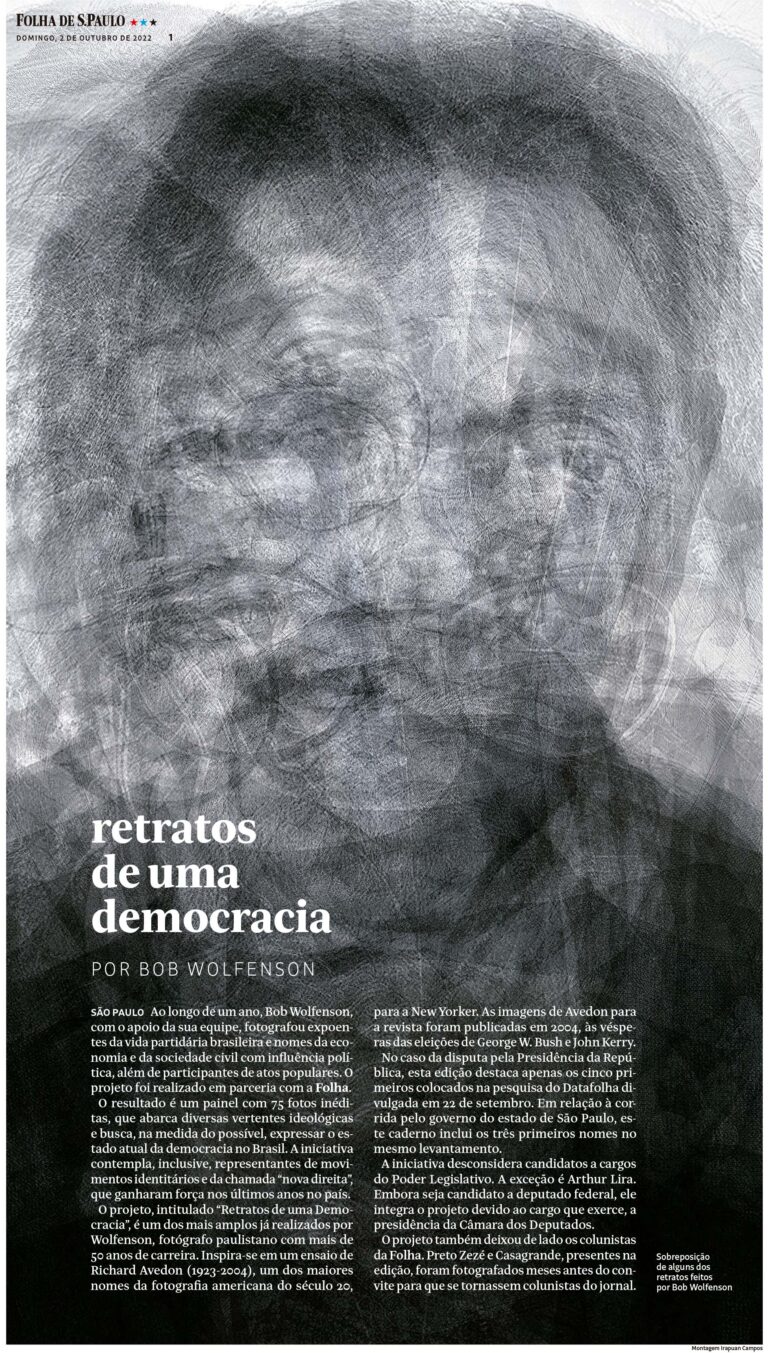AFRICA IN SP
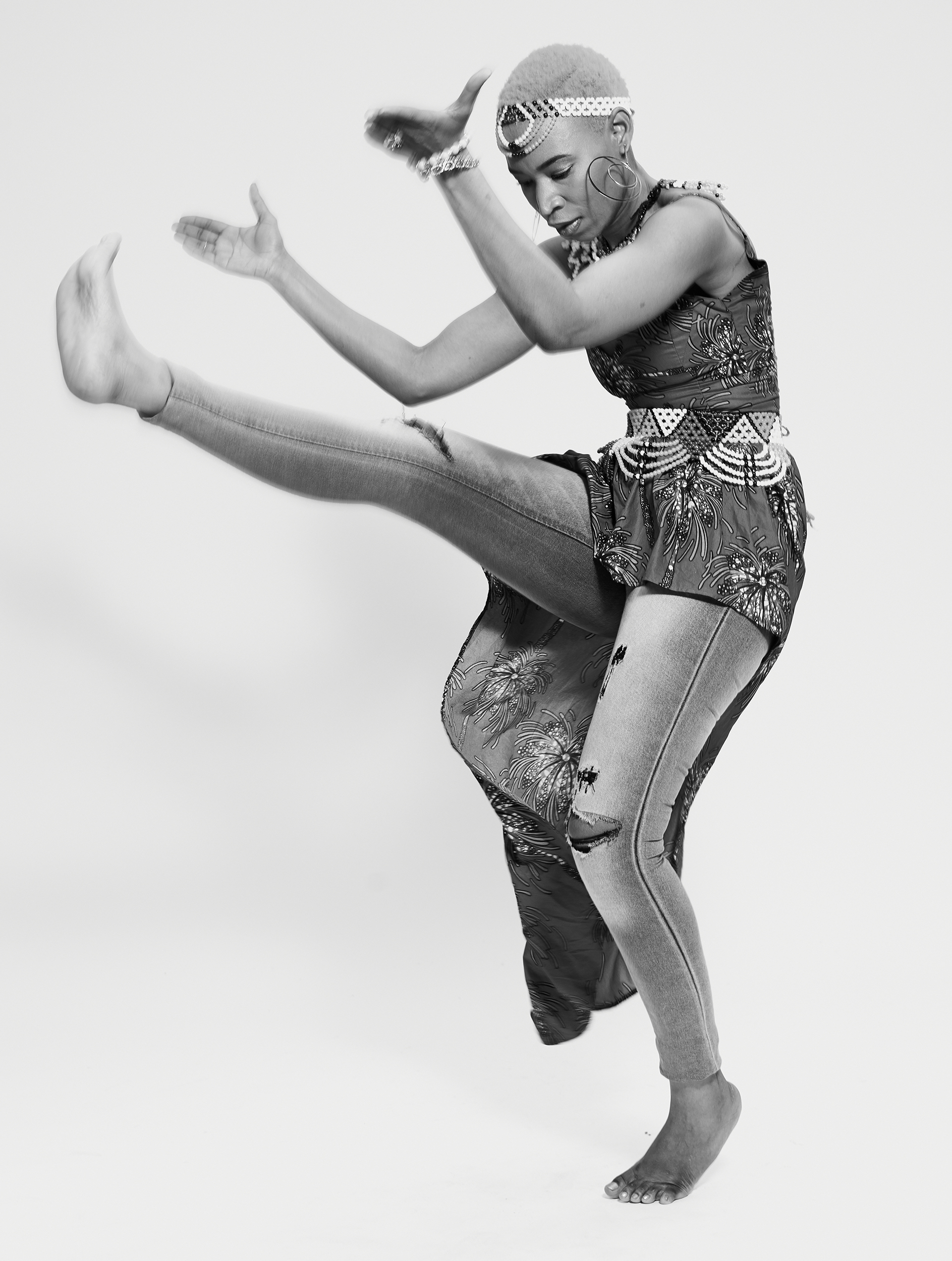 Nduduzo Siba Godesia, singer from South Africa. São Paulo, 2019
Nduduzo Siba Godesia, singer from South Africa. São Paulo, 2019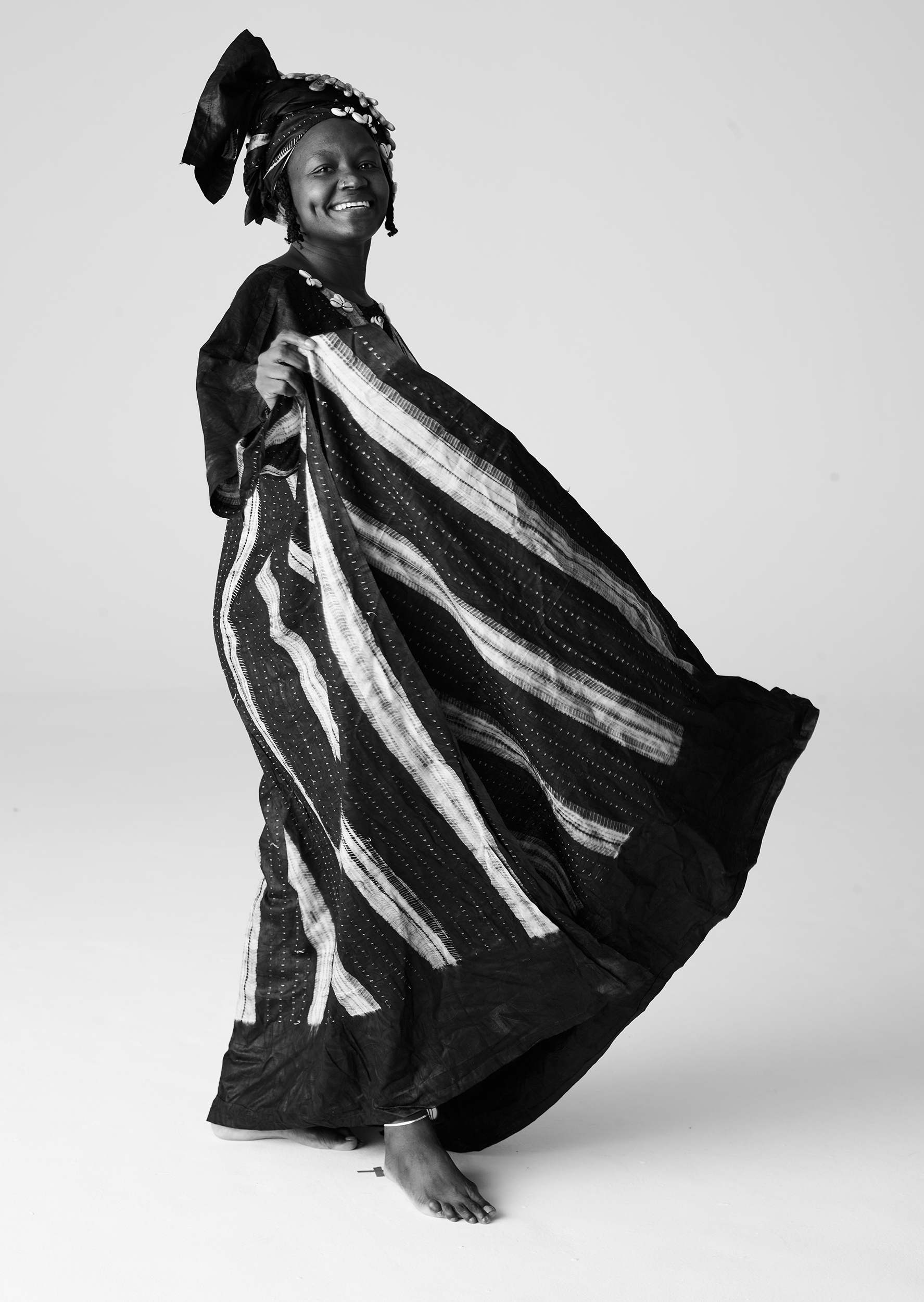 BANGÉ FURTADO, turban seamstress from Guinea Bissau. São Paulo, 2022
BANGÉ FURTADO, turban seamstress from Guinea Bissau. São Paulo, 2022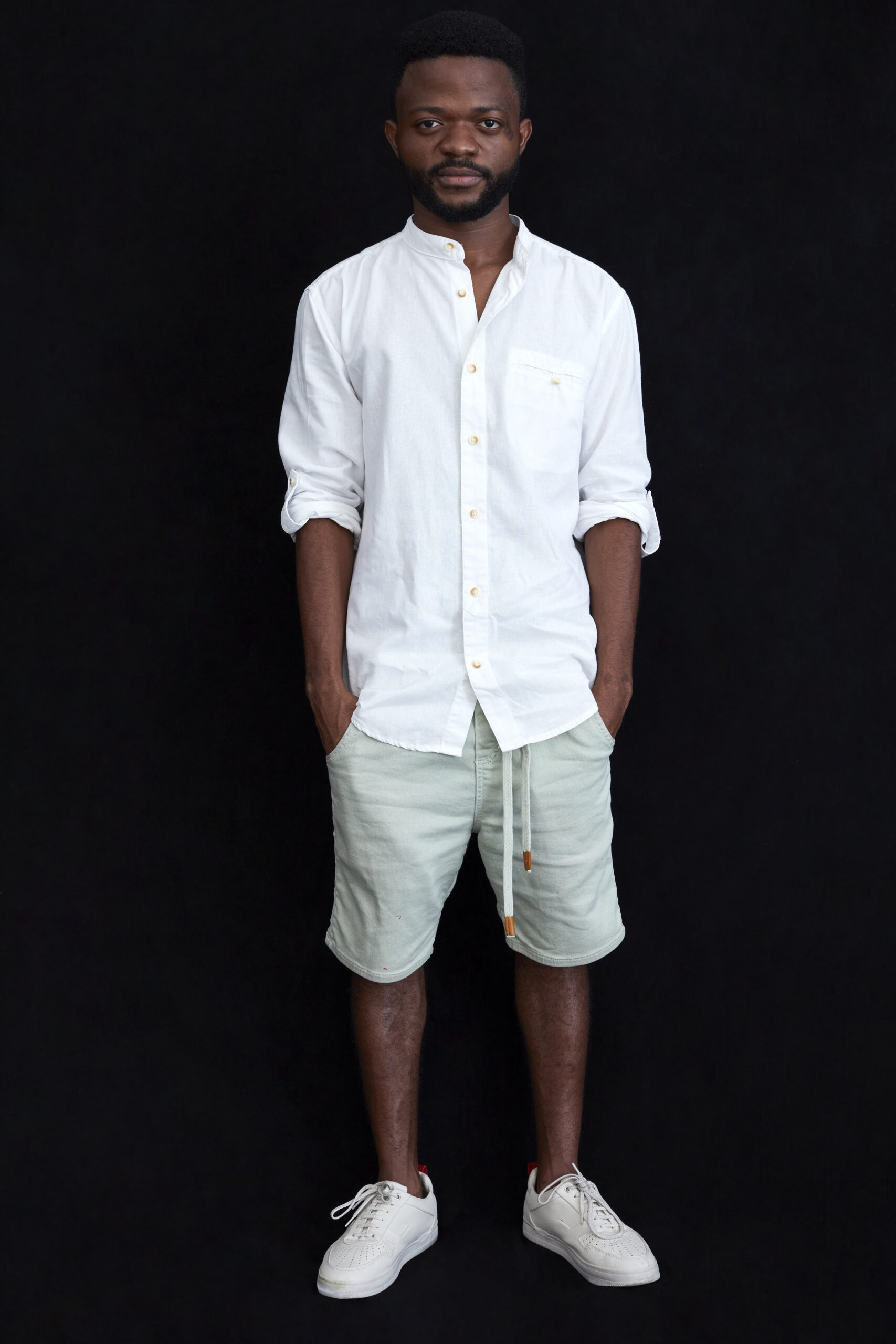 Paulo Chavonga, artist from Angola. São Paulo, 2022
Paulo Chavonga, artist from Angola. São Paulo, 2022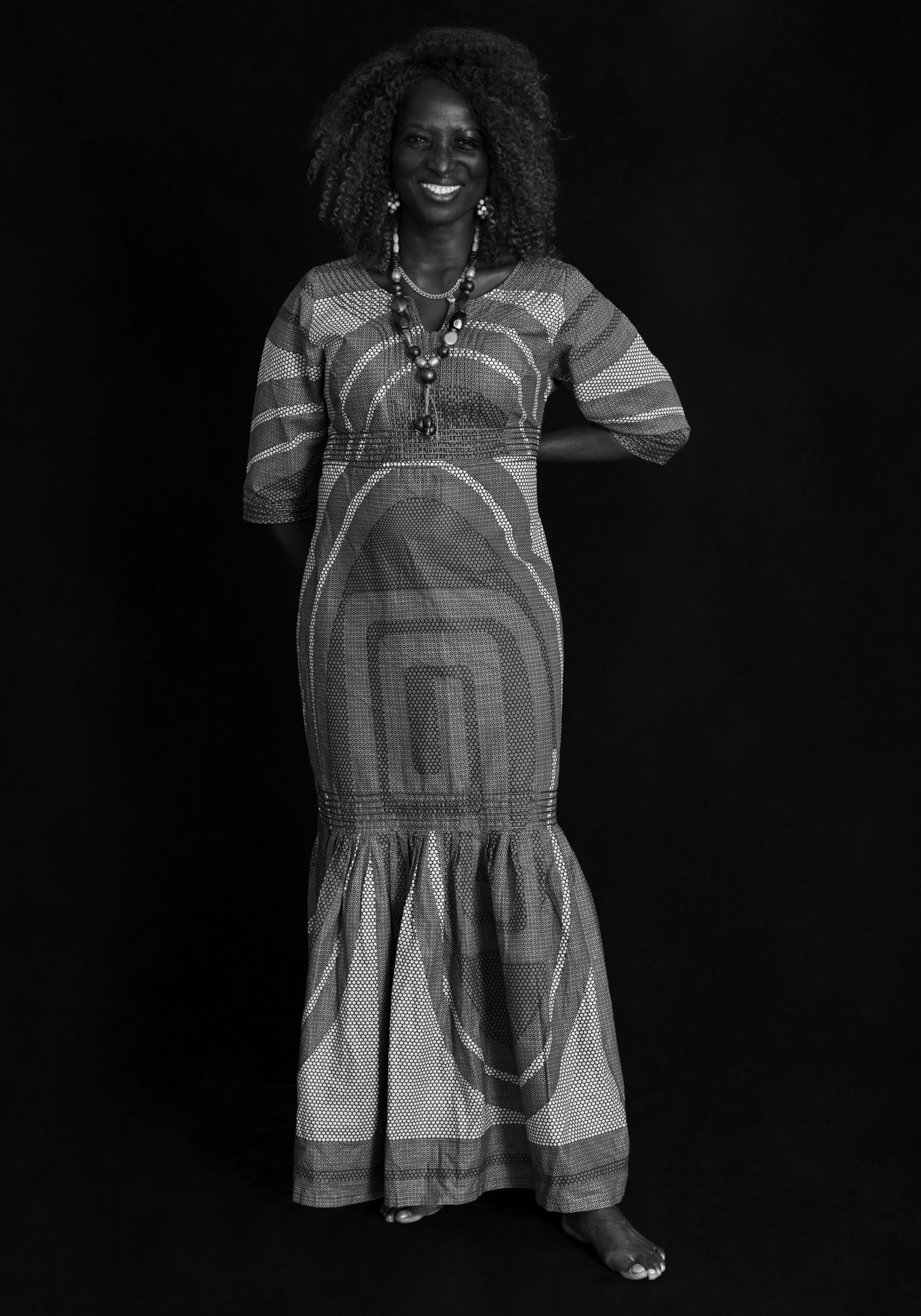 Madalena Nanque, artisan from Guinea Bissau. São Paulo, 2022
Madalena Nanque, artisan from Guinea Bissau. São Paulo, 2022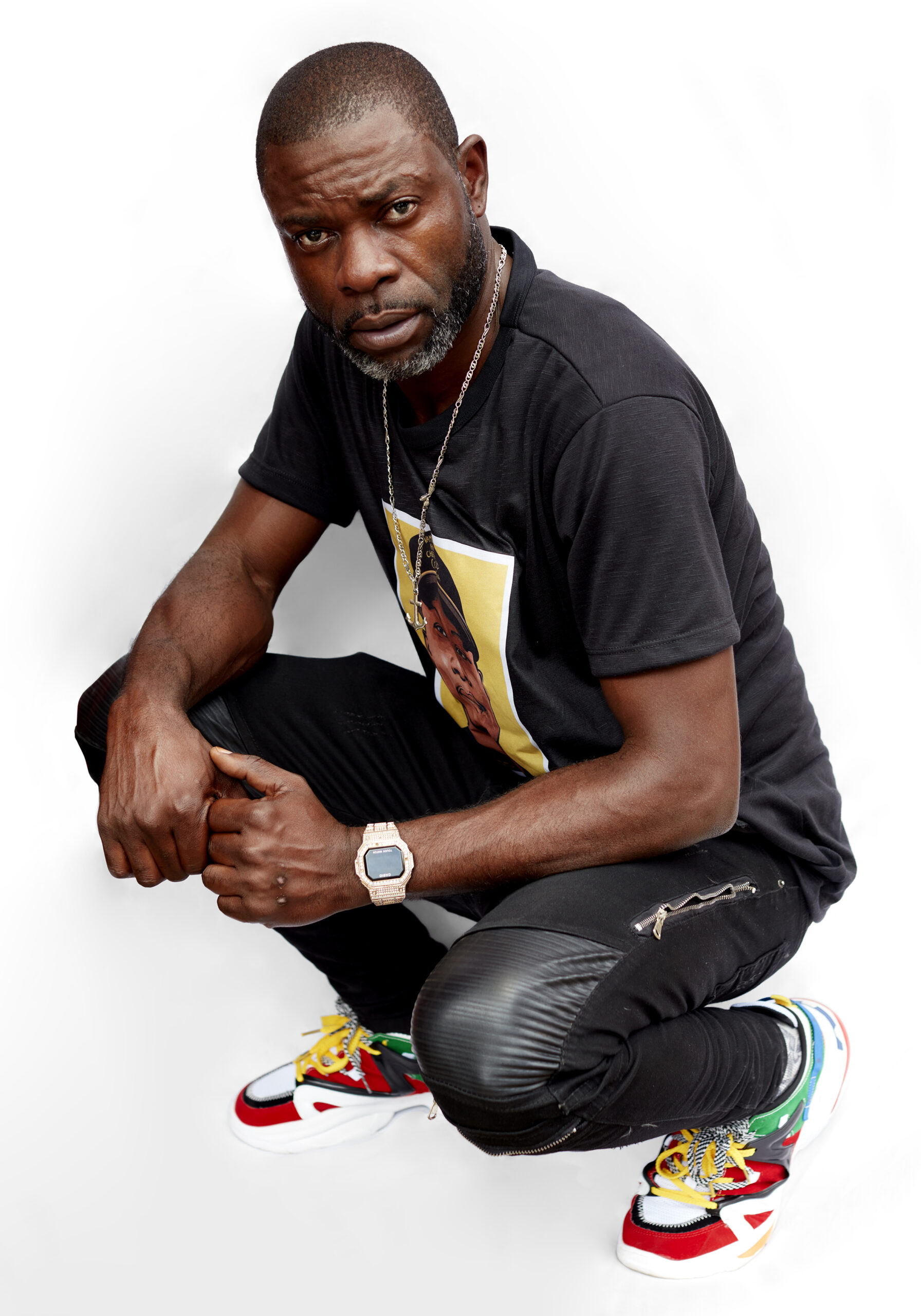
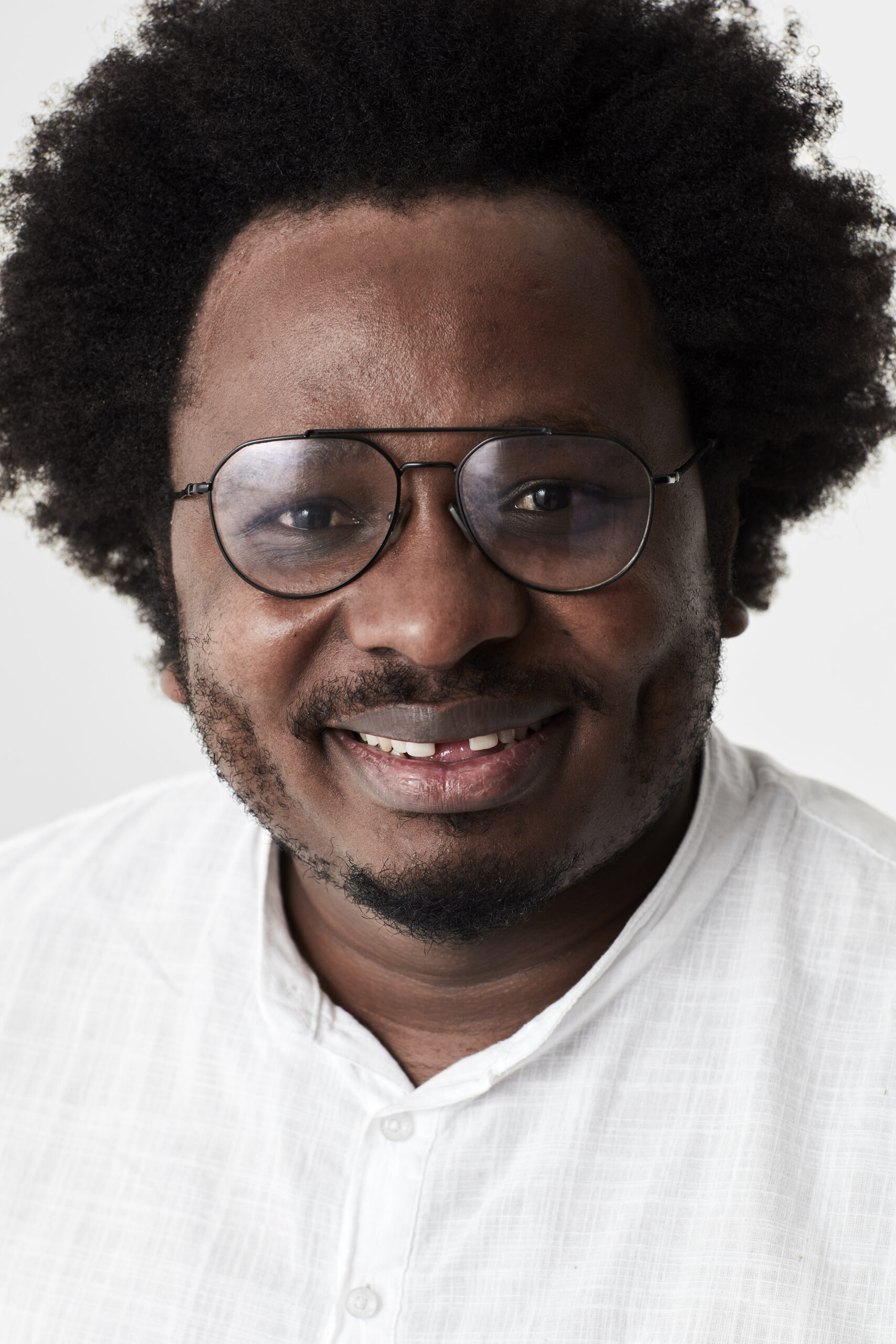 Marcial Macome, actor from Mozambique .São Paulo, 2022
Marcial Macome, actor from Mozambique .São Paulo, 2022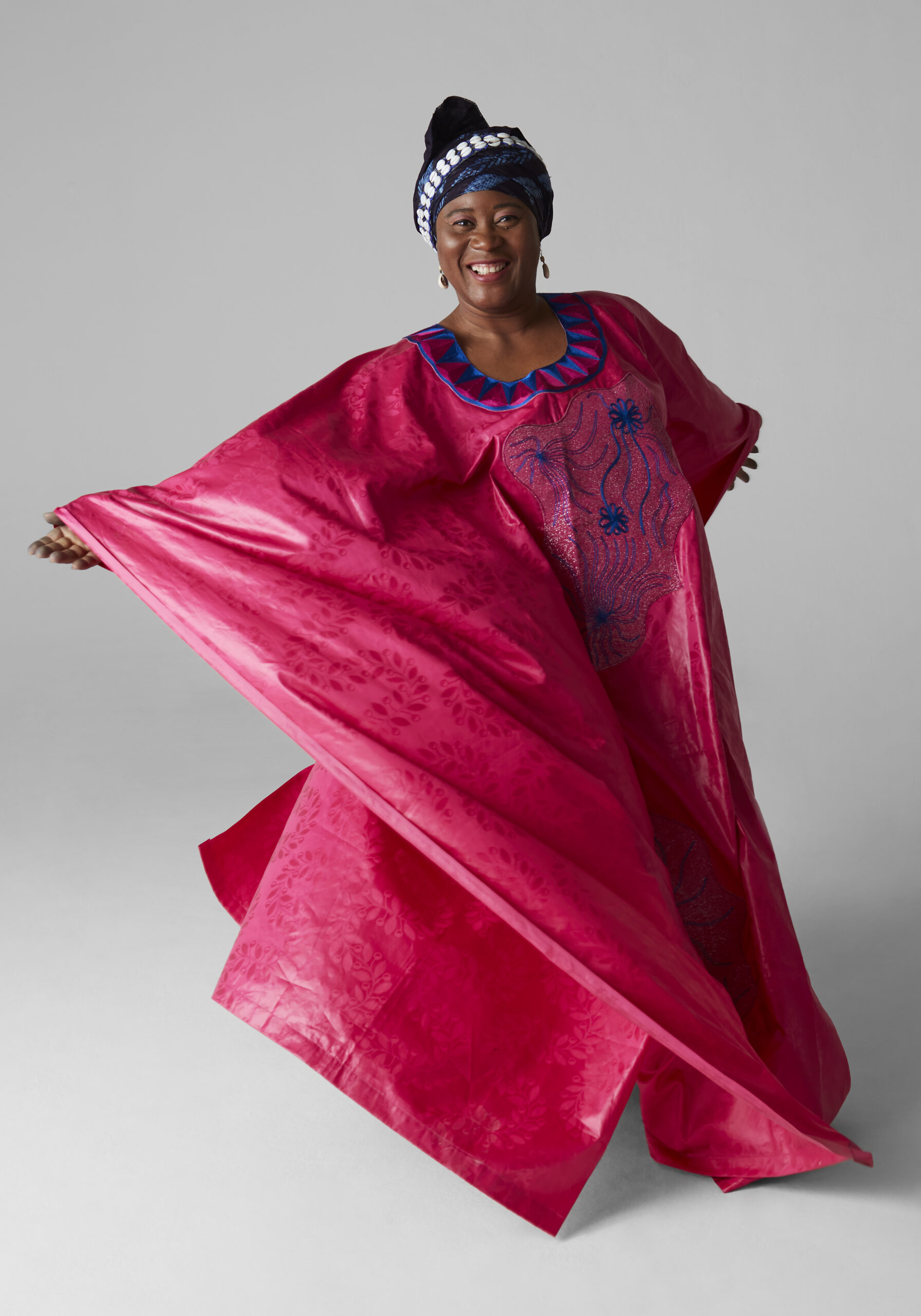 Mariama Camara, dancer from Guinea Conakry. São Paulo, 2022
Mariama Camara, dancer from Guinea Conakry. São Paulo, 2022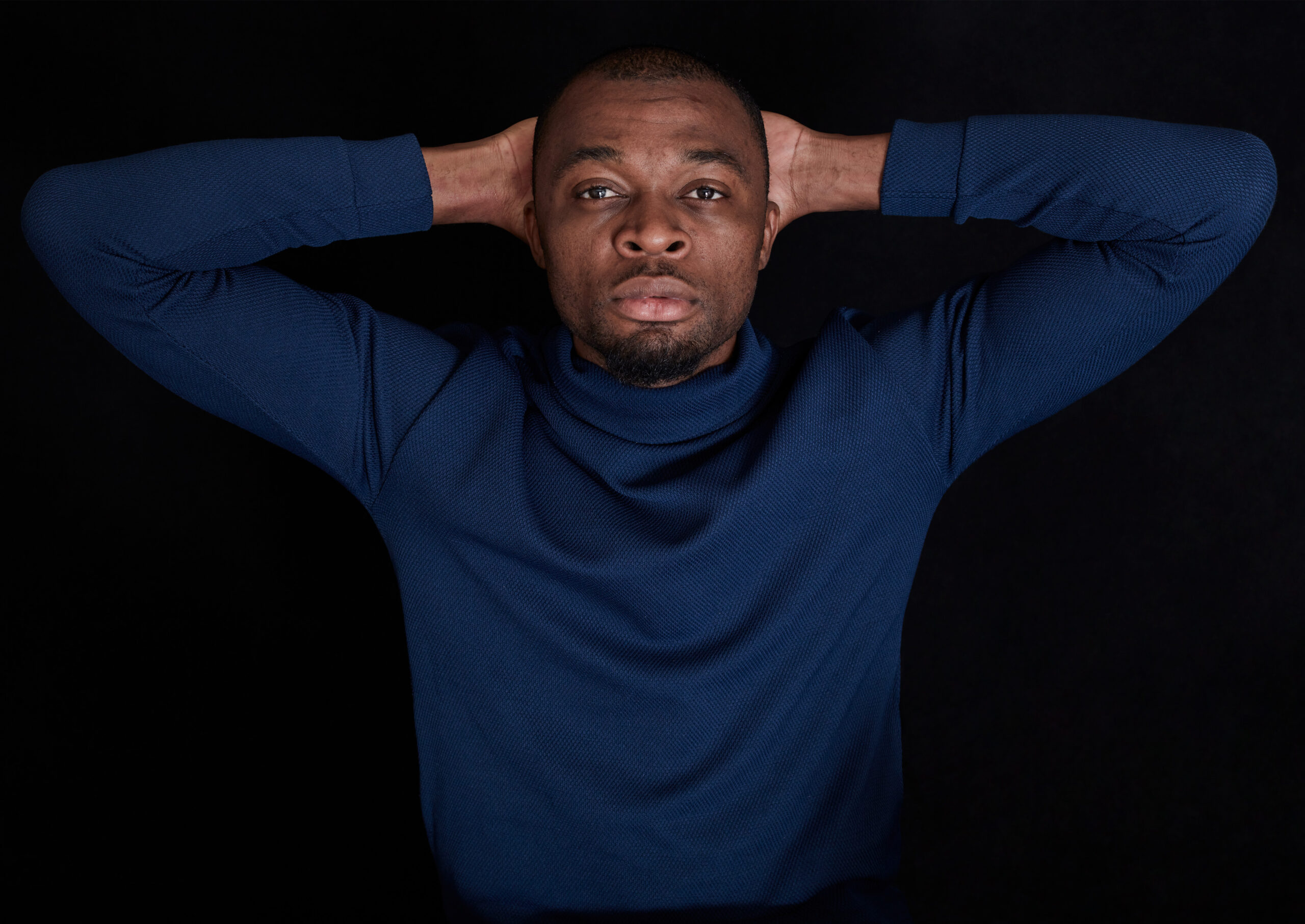 Collins Empero, model and english teacher from Nigeria. São Paulo, 2022
Collins Empero, model and english teacher from Nigeria. São Paulo, 2022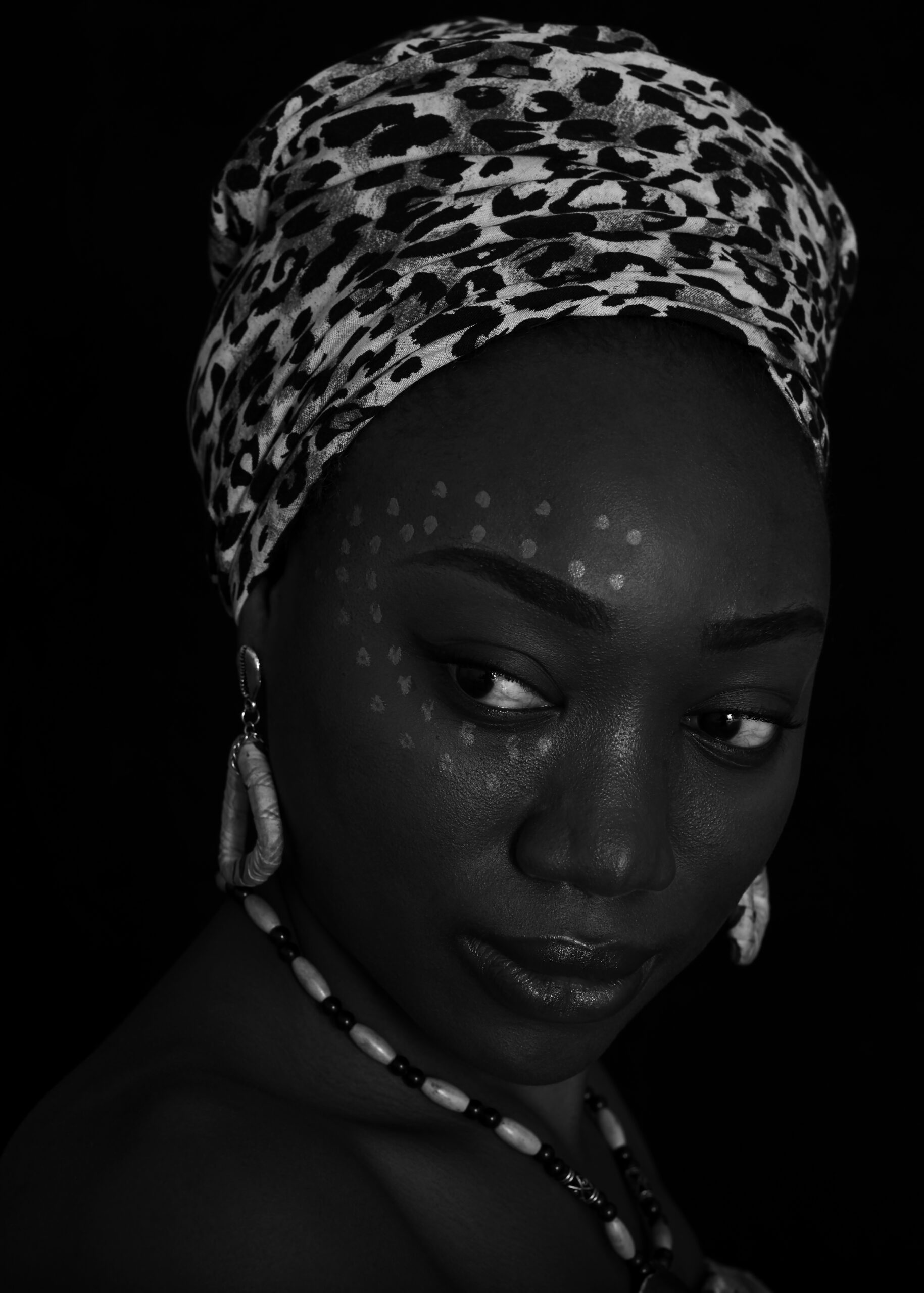 Tati Demazal, multiartist from Democratic Republic of Congo. São Paulo, 2022
Tati Demazal, multiartist from Democratic Republic of Congo. São Paulo, 2022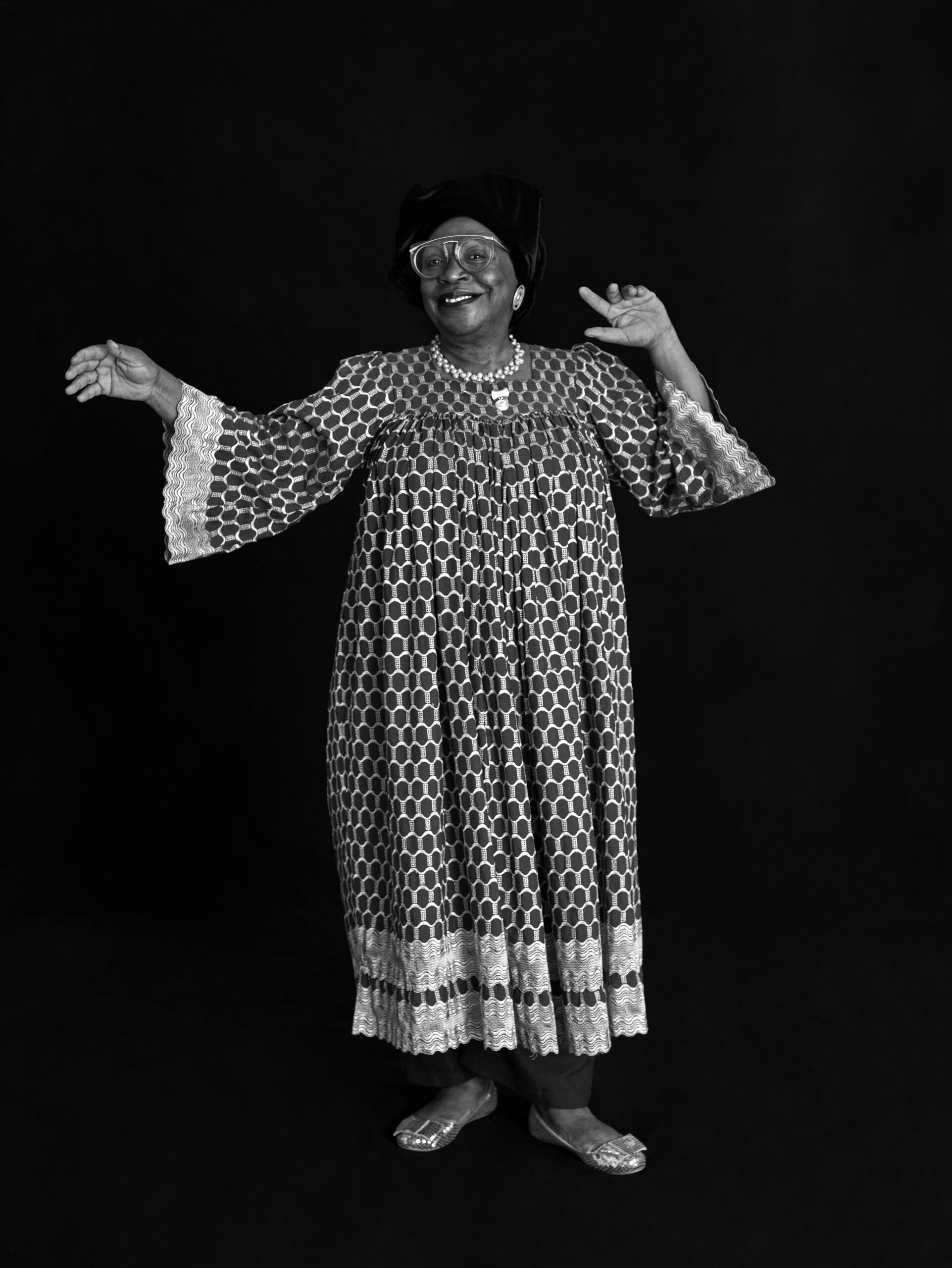 Mama Louise Edimo, journalist from Cameroon. São Paulo, 2022
Mama Louise Edimo, journalist from Cameroon. São Paulo, 2022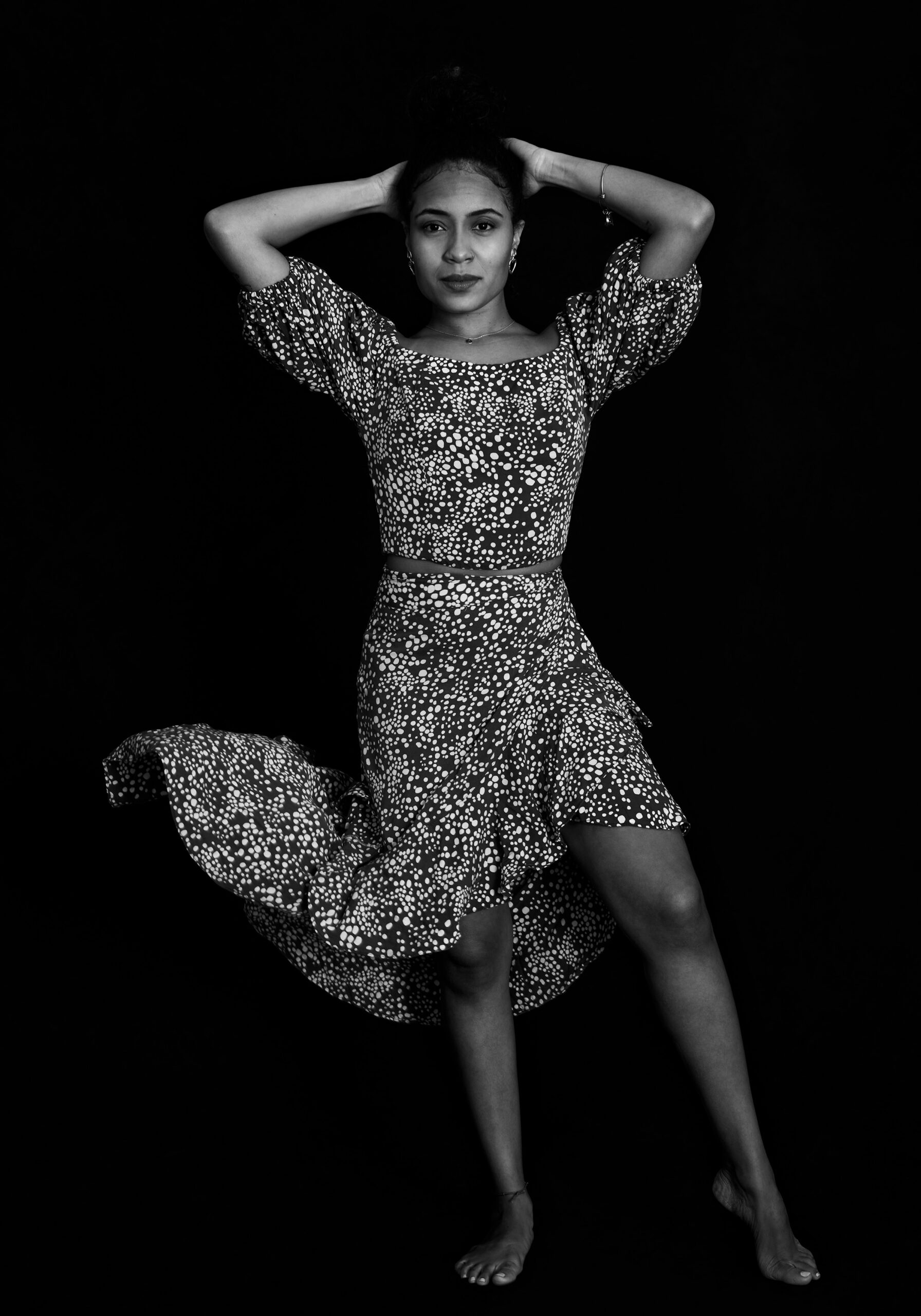 Djamila Fernandes, obstetrician from Cabo Verde. São Paulo, 2022
Djamila Fernandes, obstetrician from Cabo Verde. São Paulo, 2022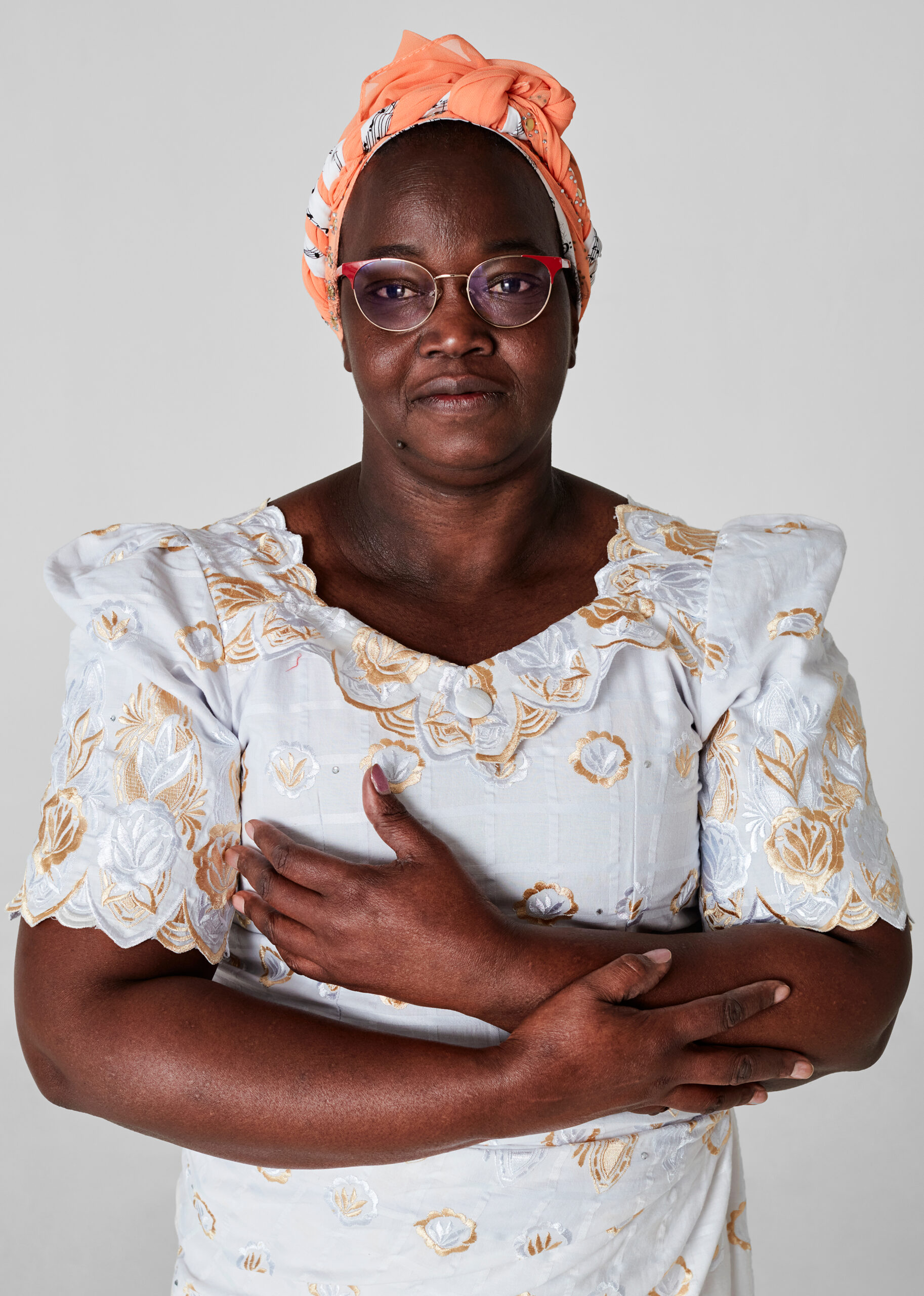 Isabelle Djenoyom, nun from Chad. São Paulo, 2022
Isabelle Djenoyom, nun from Chad. São Paulo, 2022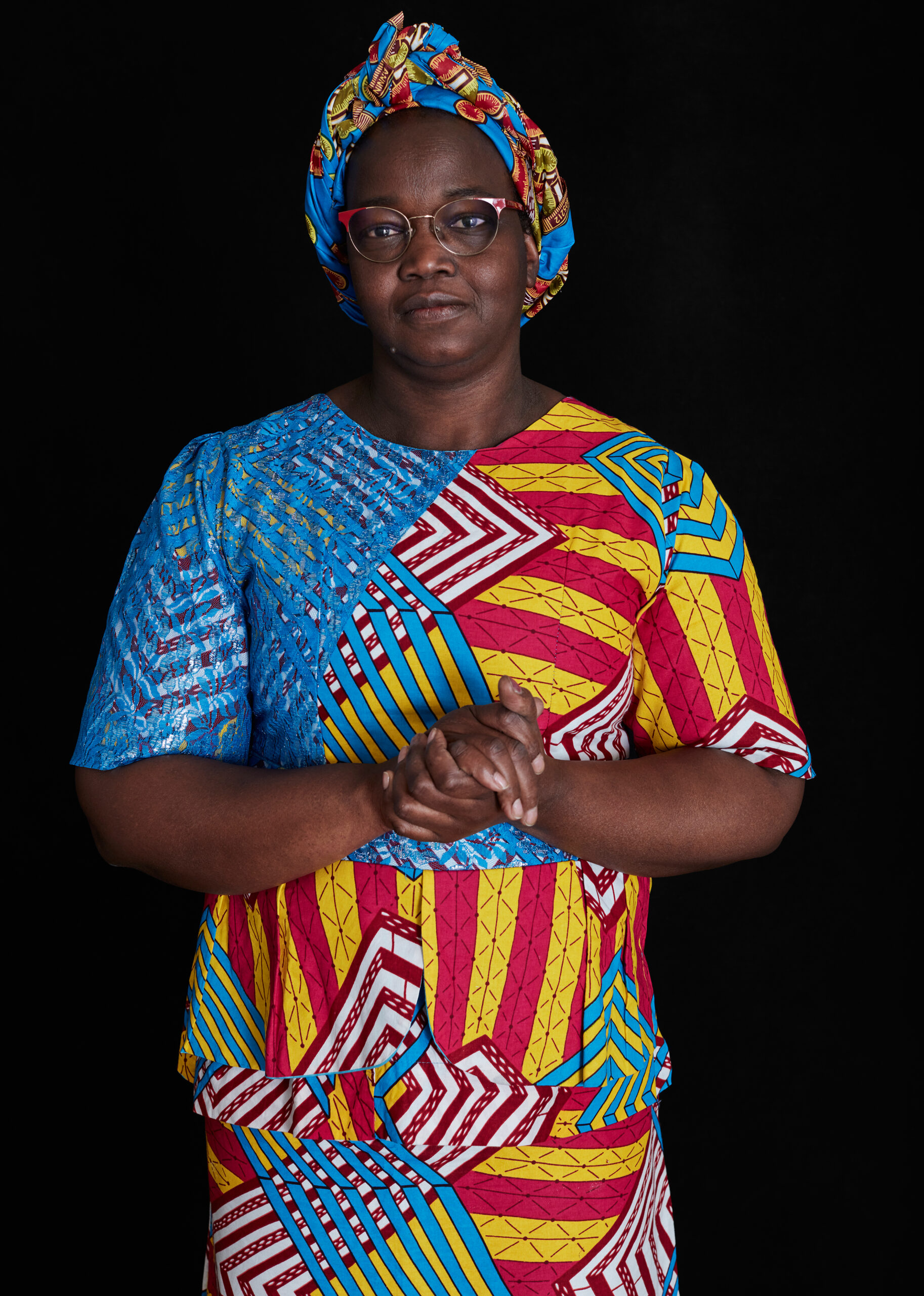 Isabelle Djenoyom, nun from Chad. São Paulo, 2022
Isabelle Djenoyom, nun from Chad. São Paulo, 2022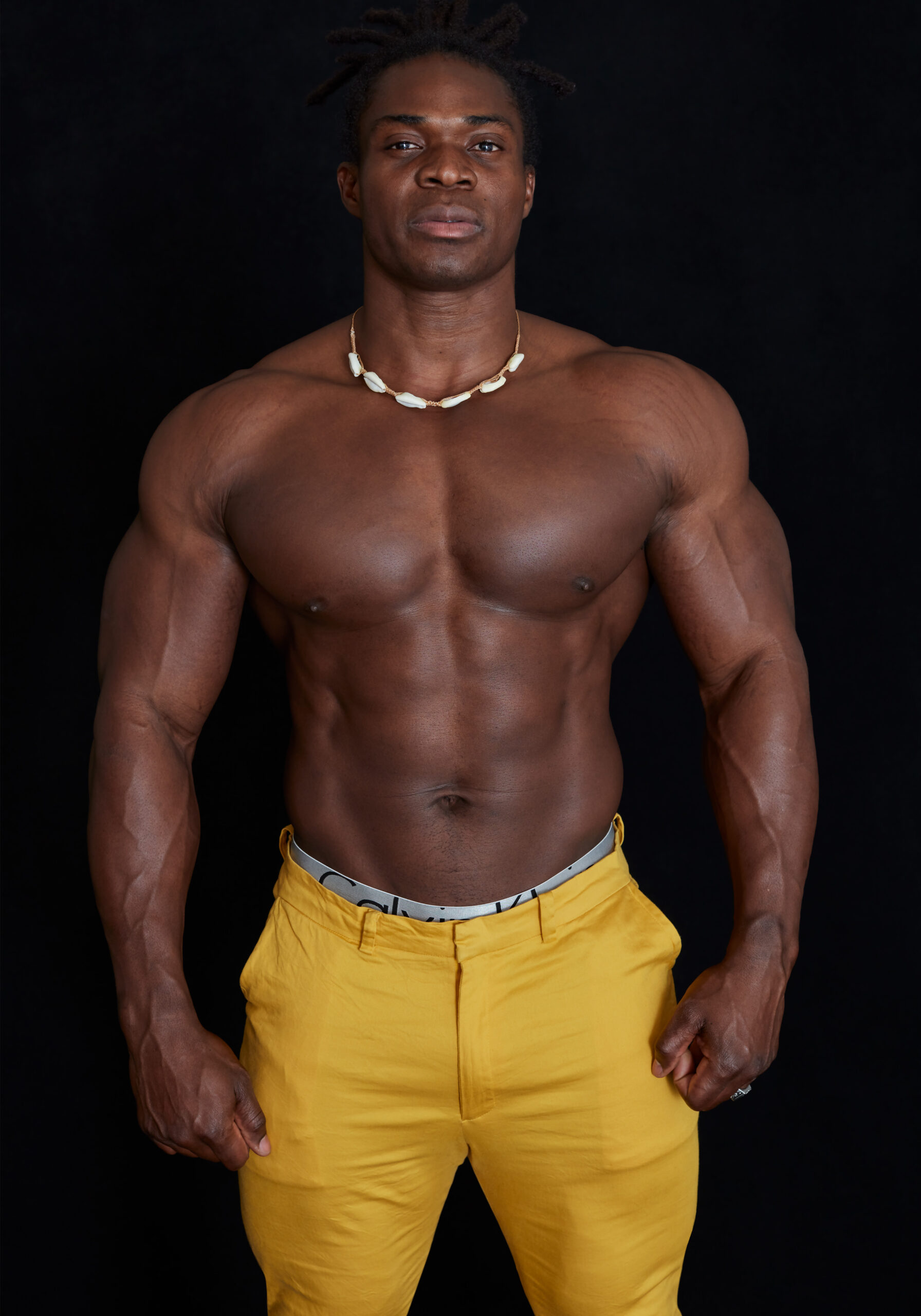 John Obinna, alterophilist athlete from Nigeria. São Paulo, 2022
John Obinna, alterophilist athlete from Nigeria. São Paulo, 2022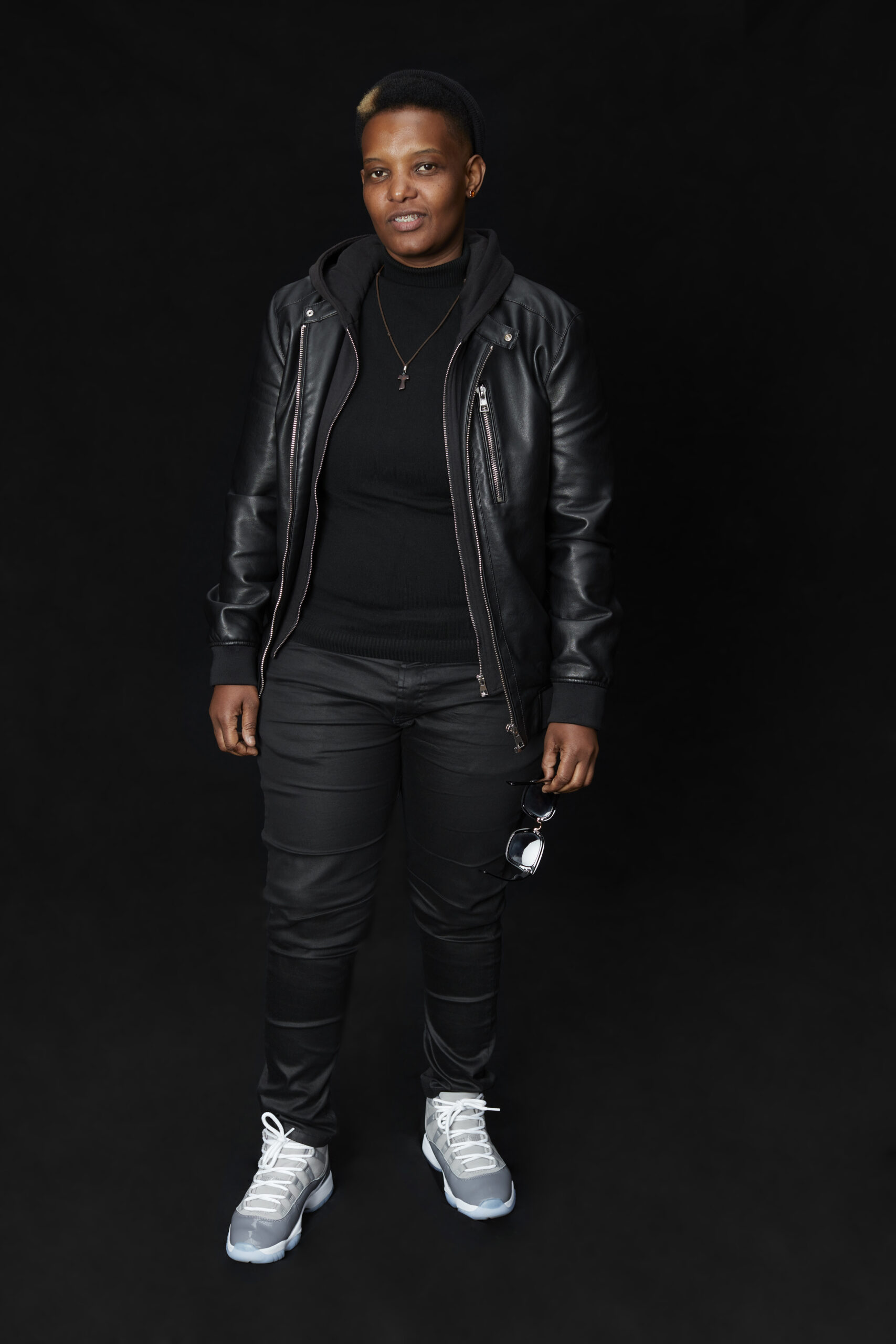
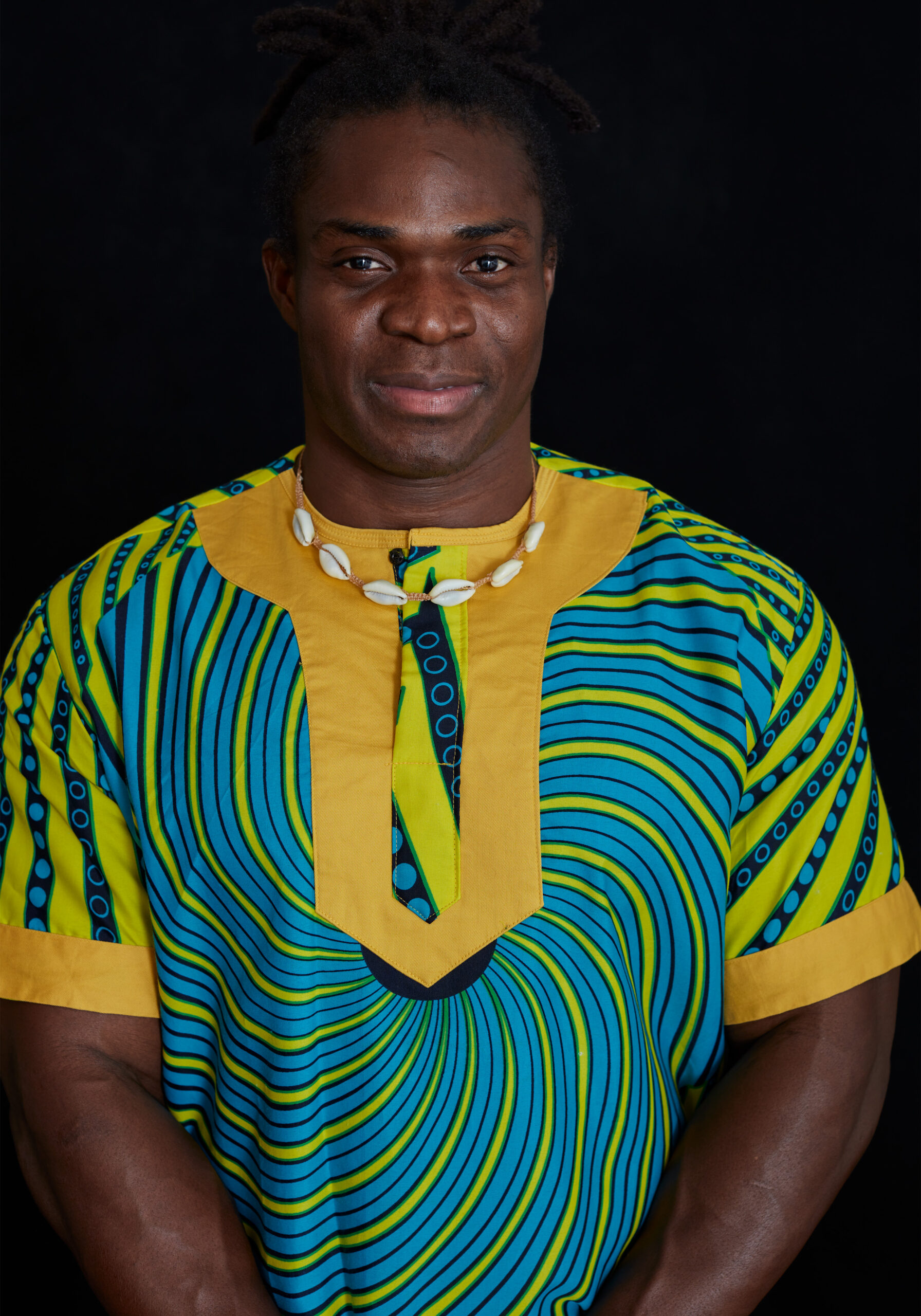 John Obinna, alterophilist athlete from Nigeria. São Paulo, 2022
John Obinna, alterophilist athlete from Nigeria. São Paulo, 2022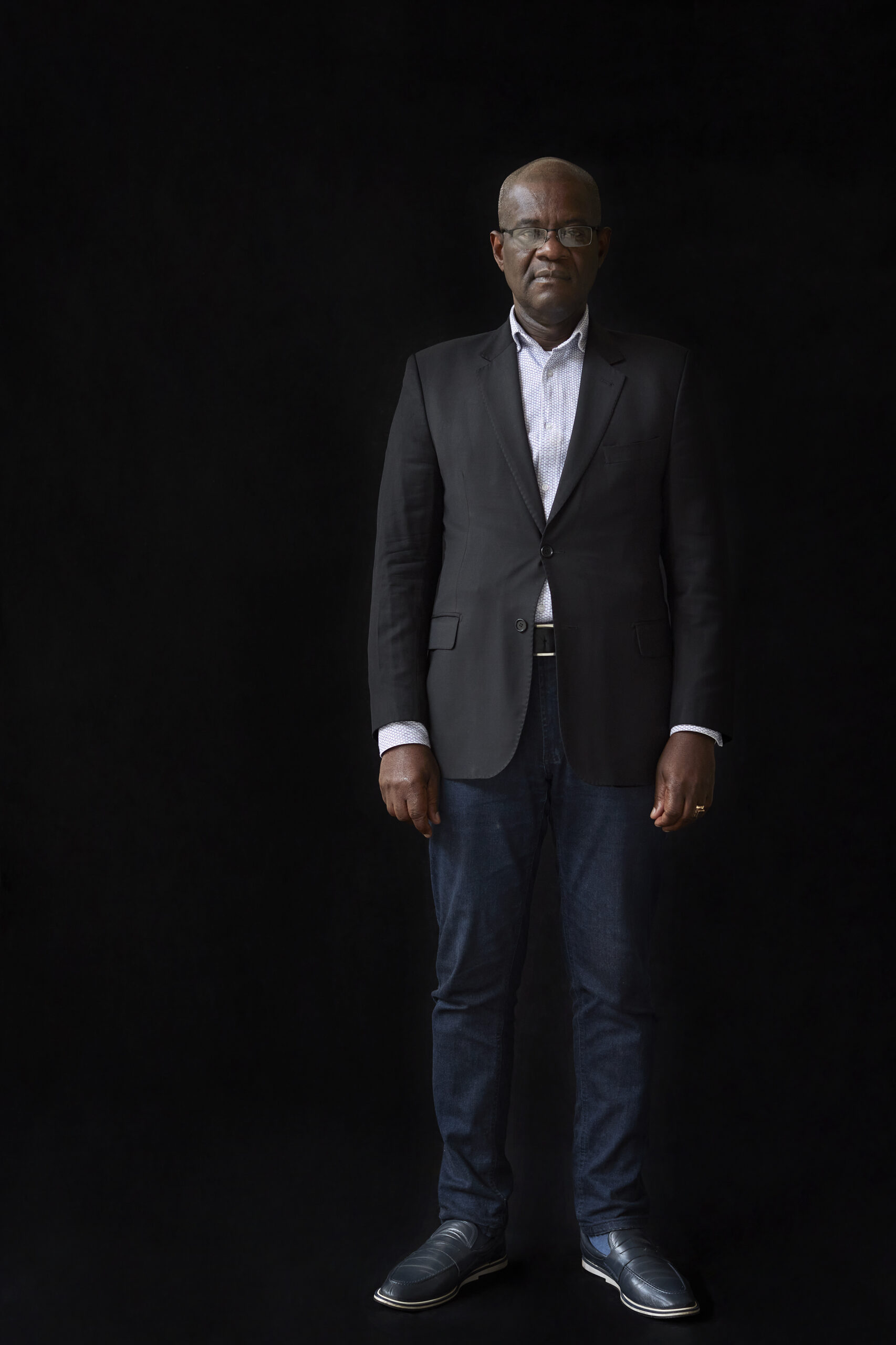 Ngouan Kouassi Lambert, engineer from Ivory coast. São Paulo, 2022
Ngouan Kouassi Lambert, engineer from Ivory coast. São Paulo, 2022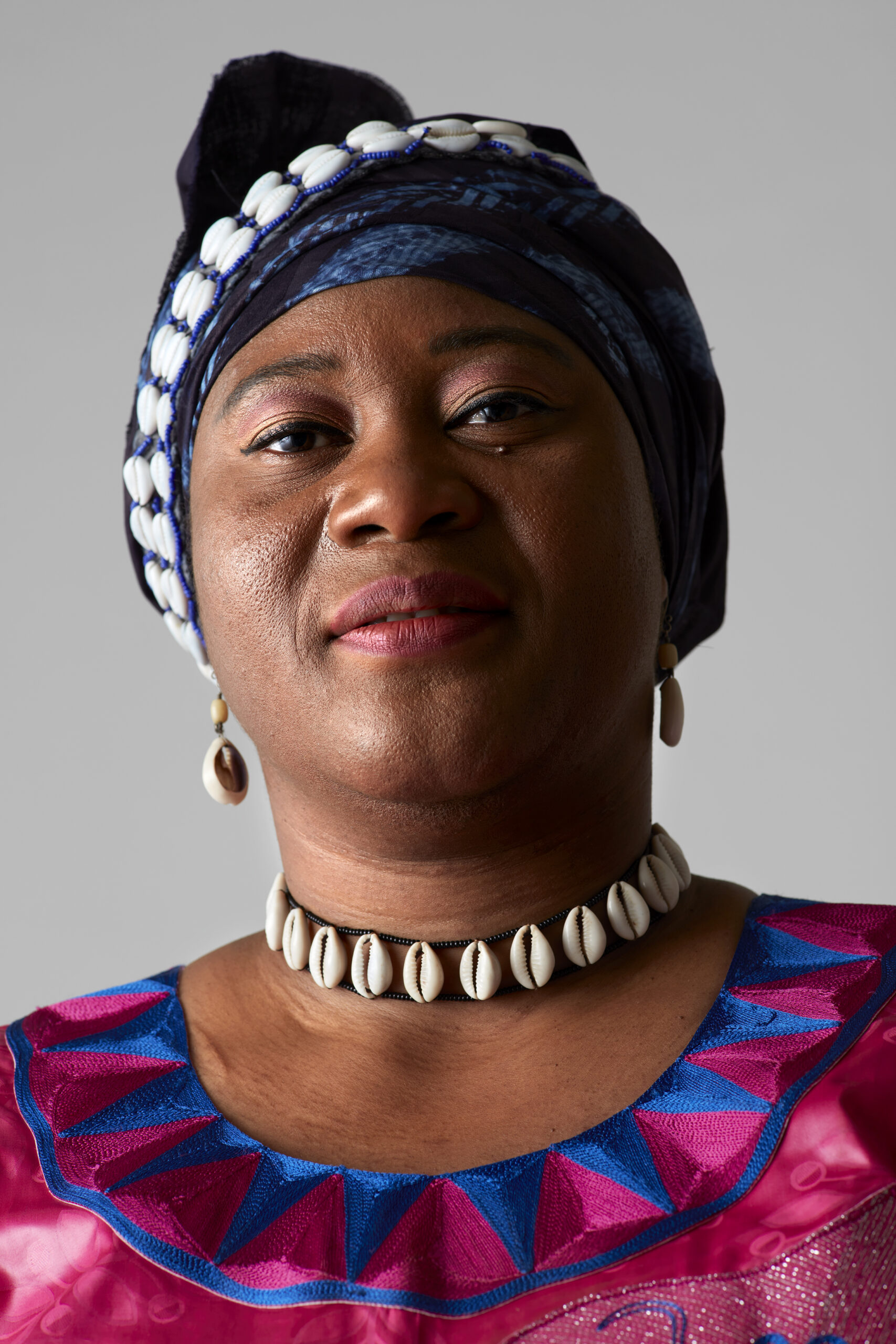 Mariama Camara, dancer from Guinea Conakry. São Paulo, 2022
Mariama Camara, dancer from Guinea Conakry. São Paulo, 2022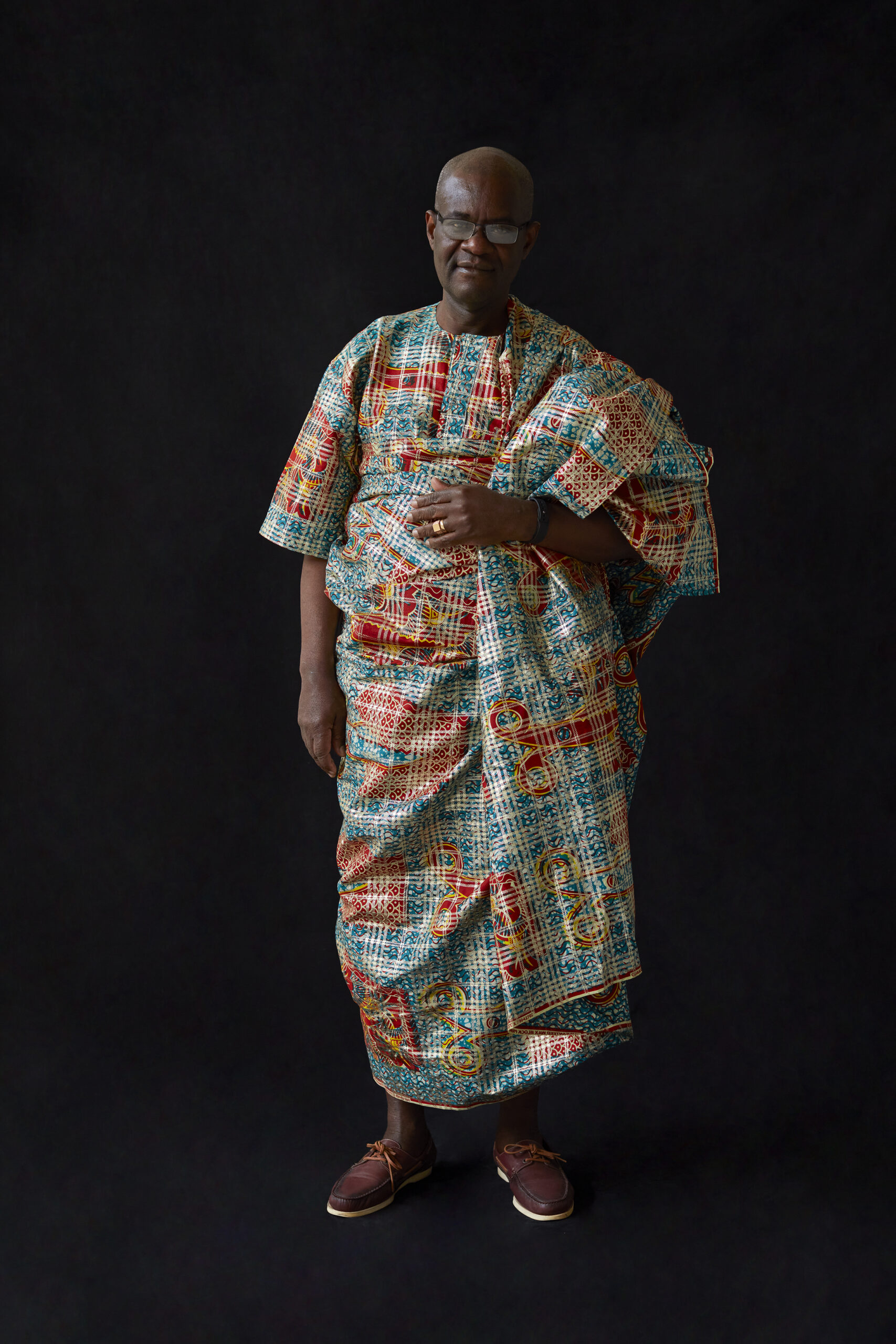 Ngouan Kouassi Lambert, engineer from Ivory Coast. São Paulo, 2022
Ngouan Kouassi Lambert, engineer from Ivory Coast. São Paulo, 2022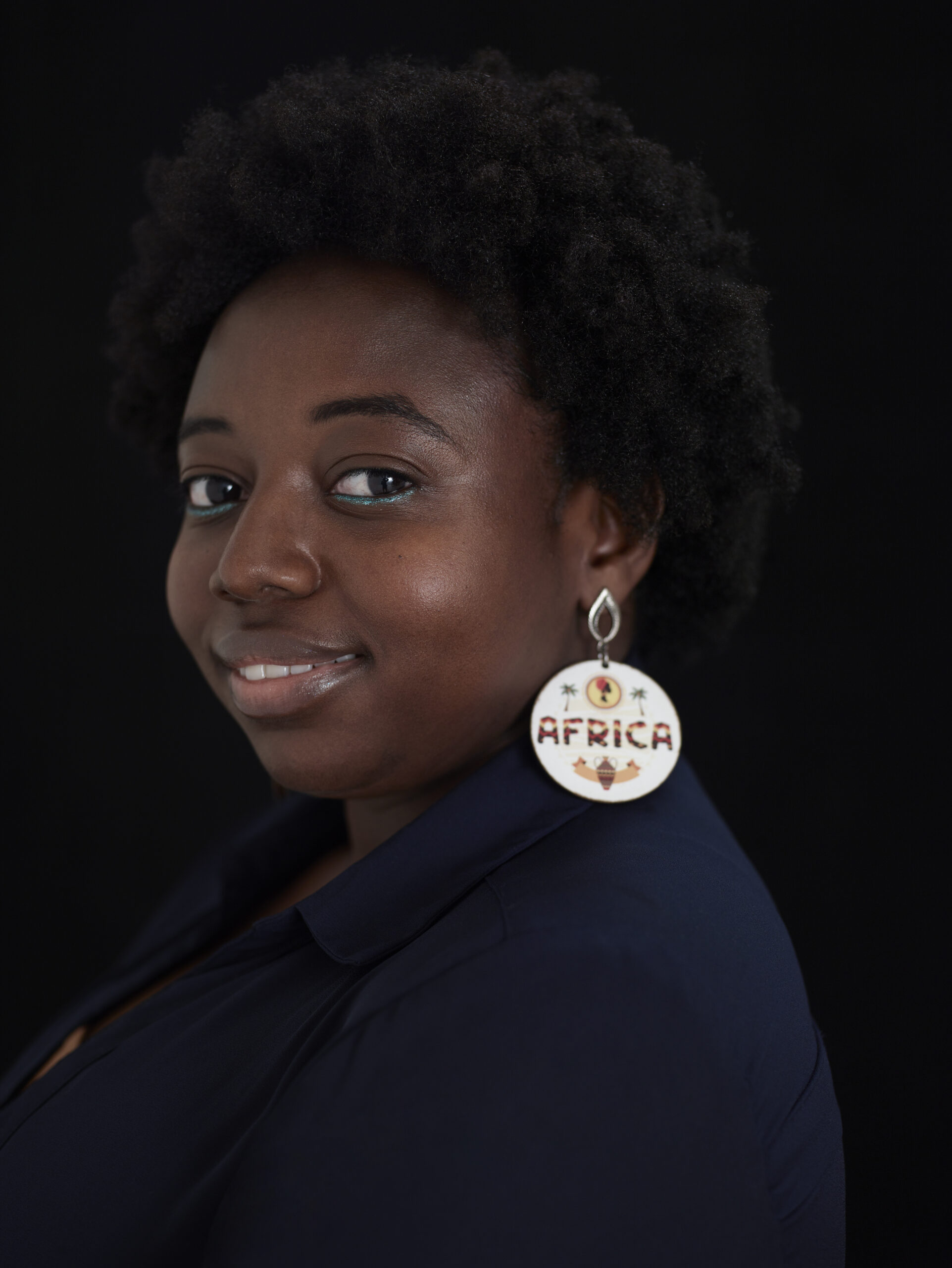 Luiza Ngola, writer from Angola. São Paulo, 2022
Luiza Ngola, writer from Angola. São Paulo, 2022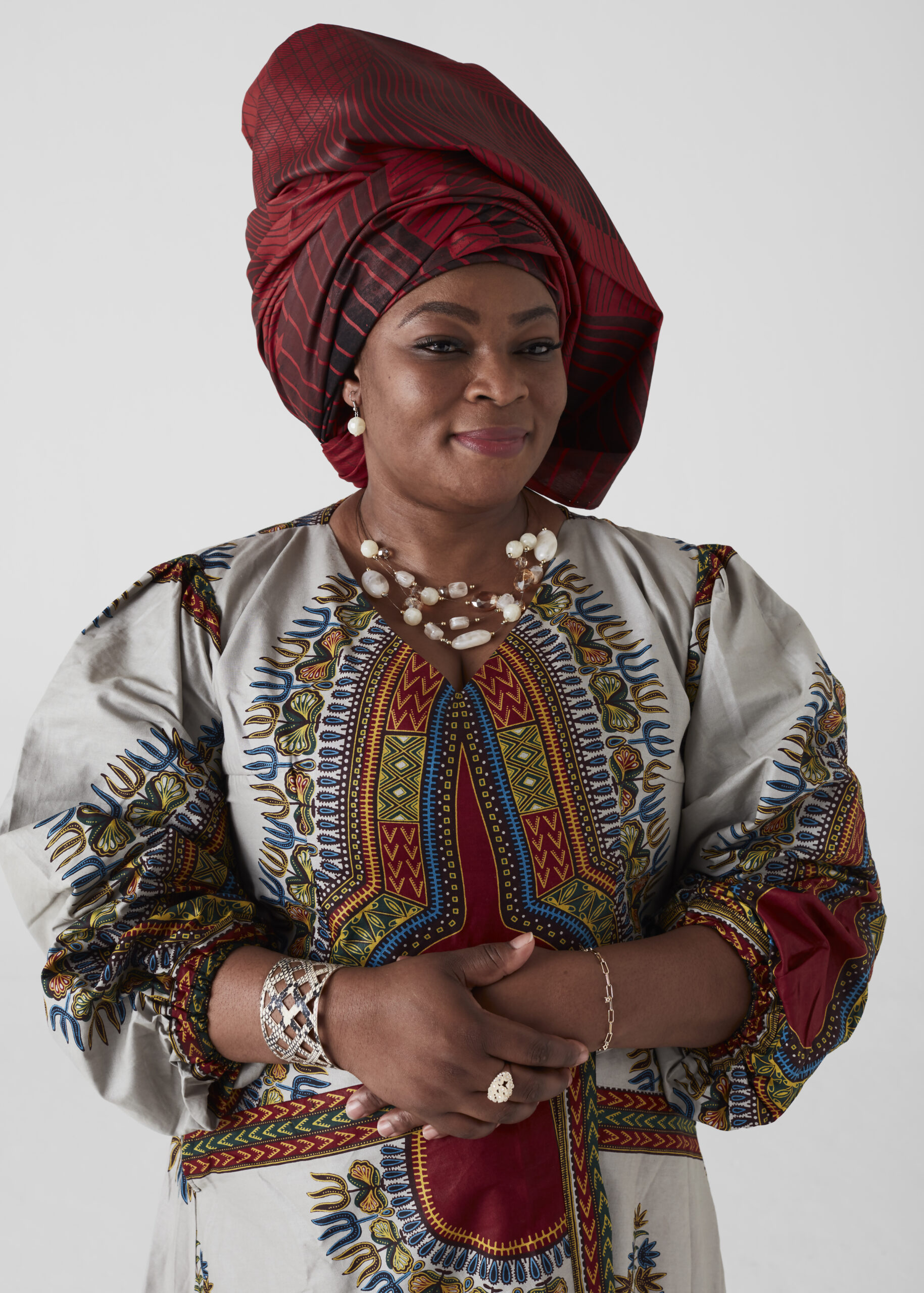 Hortense Mbuyi, lawyer from Democratic Republic of Congo. São Paulo, 2022
Hortense Mbuyi, lawyer from Democratic Republic of Congo. São Paulo, 2022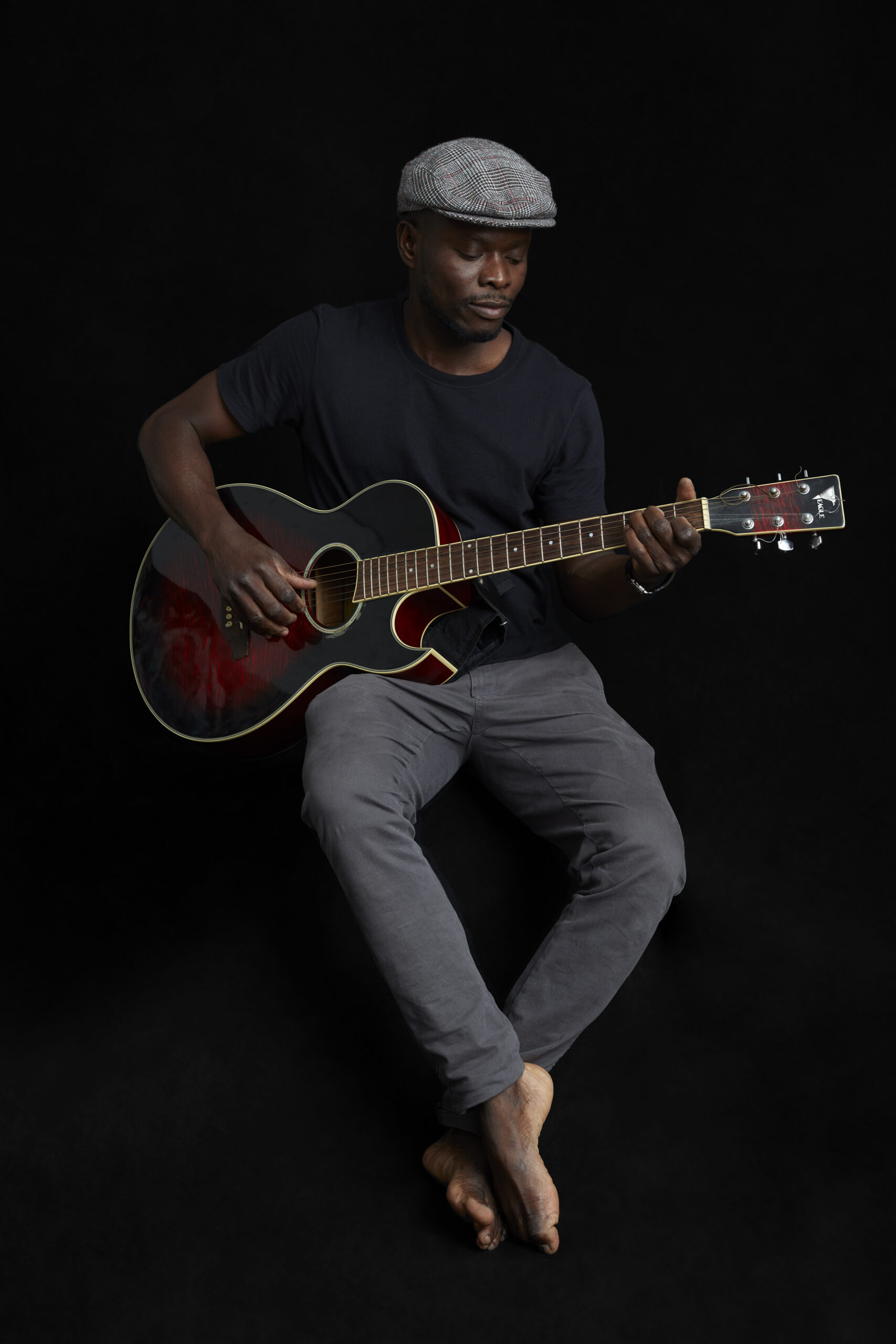 Tyno Val, musician and car painter from Togo. São Paulo, 2022
Tyno Val, musician and car painter from Togo. São Paulo, 2022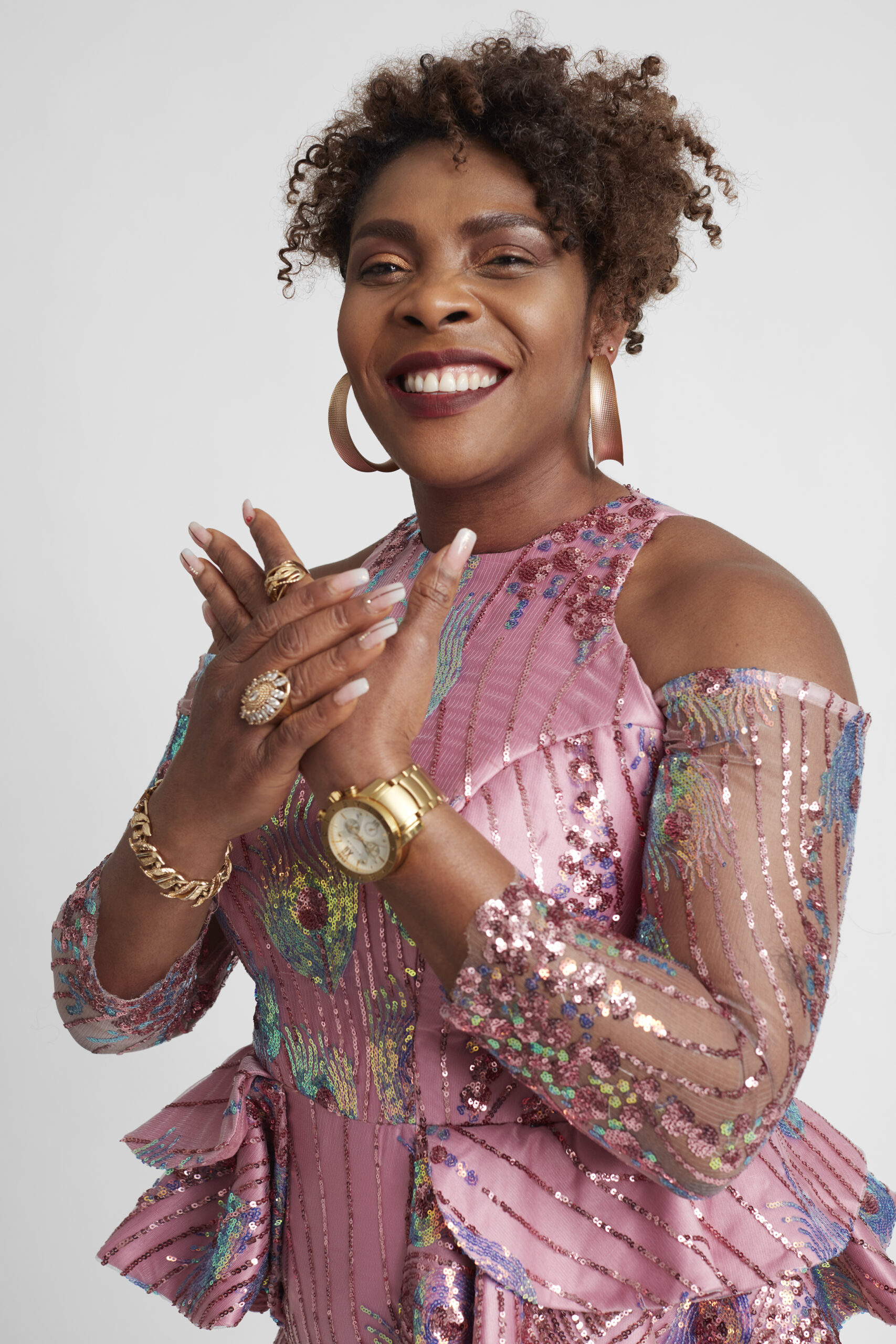 Angela Unachukwy, businesswoman from Nigeria. São Paulo, 2022
Angela Unachukwy, businesswoman from Nigeria. São Paulo, 2022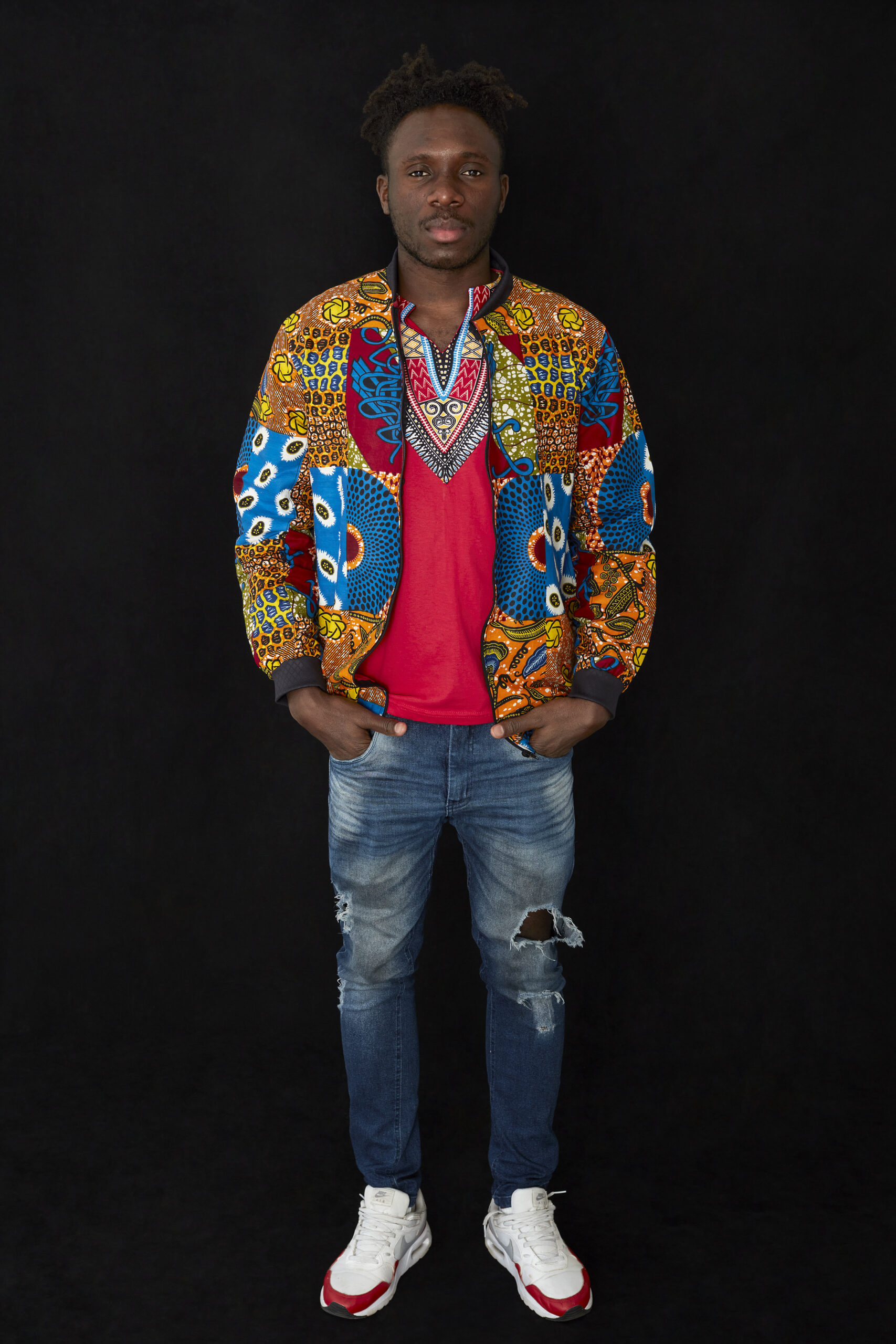 Abidou Traore, soccer player from Mali. São Paulo, 2022
Abidou Traore, soccer player from Mali. São Paulo, 2022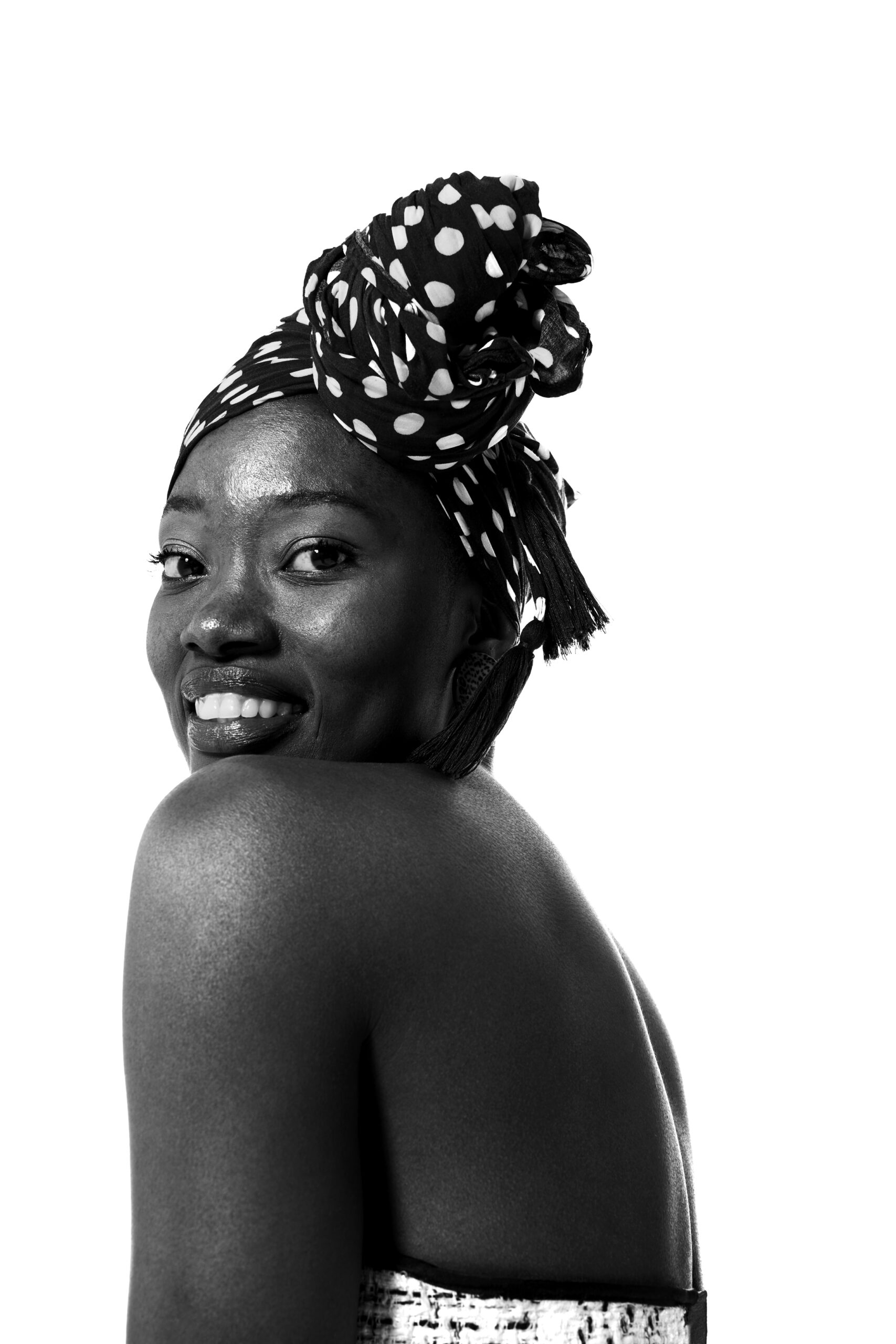 Samira Nancassa, model and artist from Guinea Bissau. São Paulo, 2019
Samira Nancassa, model and artist from Guinea Bissau. São Paulo, 2019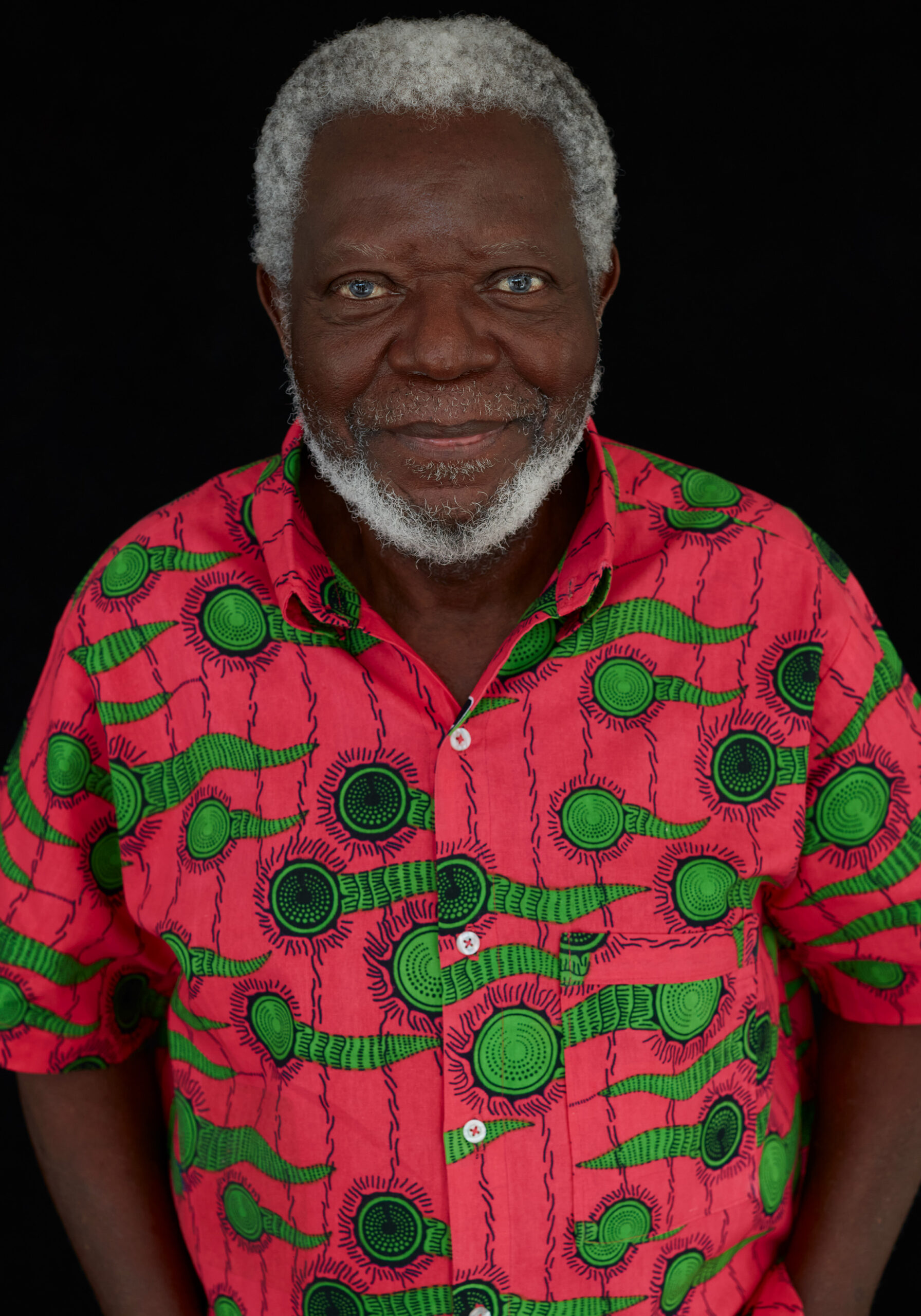 Kabengele Munaga, anthropologist from Democratic Republic of Congo. Itanhaém, 2022
Kabengele Munaga, anthropologist from Democratic Republic of Congo. Itanhaém, 2022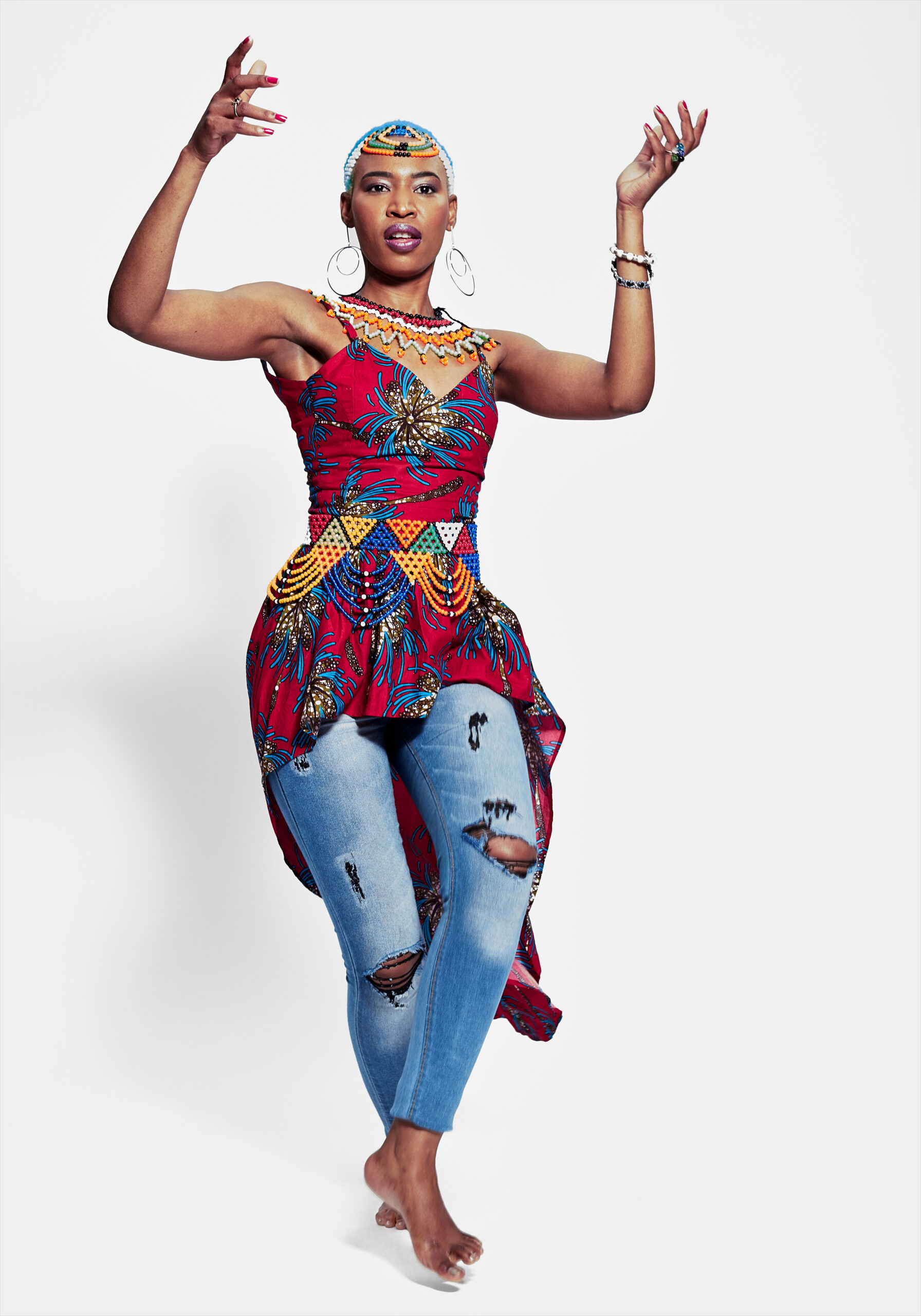 Nduduzo Siba Godesia, singer from South Africa. São Paulo, 2019
Nduduzo Siba Godesia, singer from South Africa. São Paulo, 2019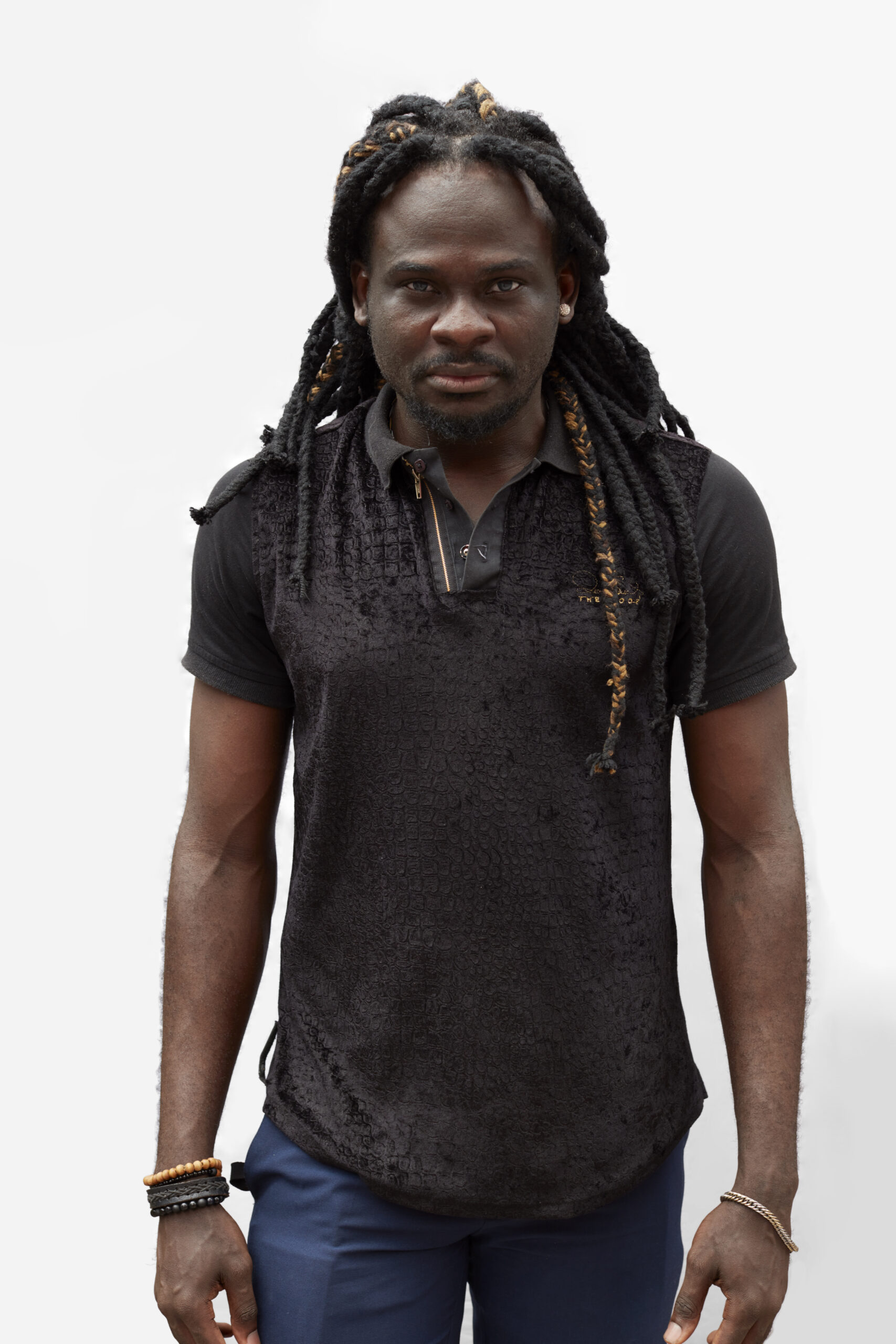 Maycon Clinton, model agency owner from Angola. São PAulo, 2019
Maycon Clinton, model agency owner from Angola. São PAulo, 2019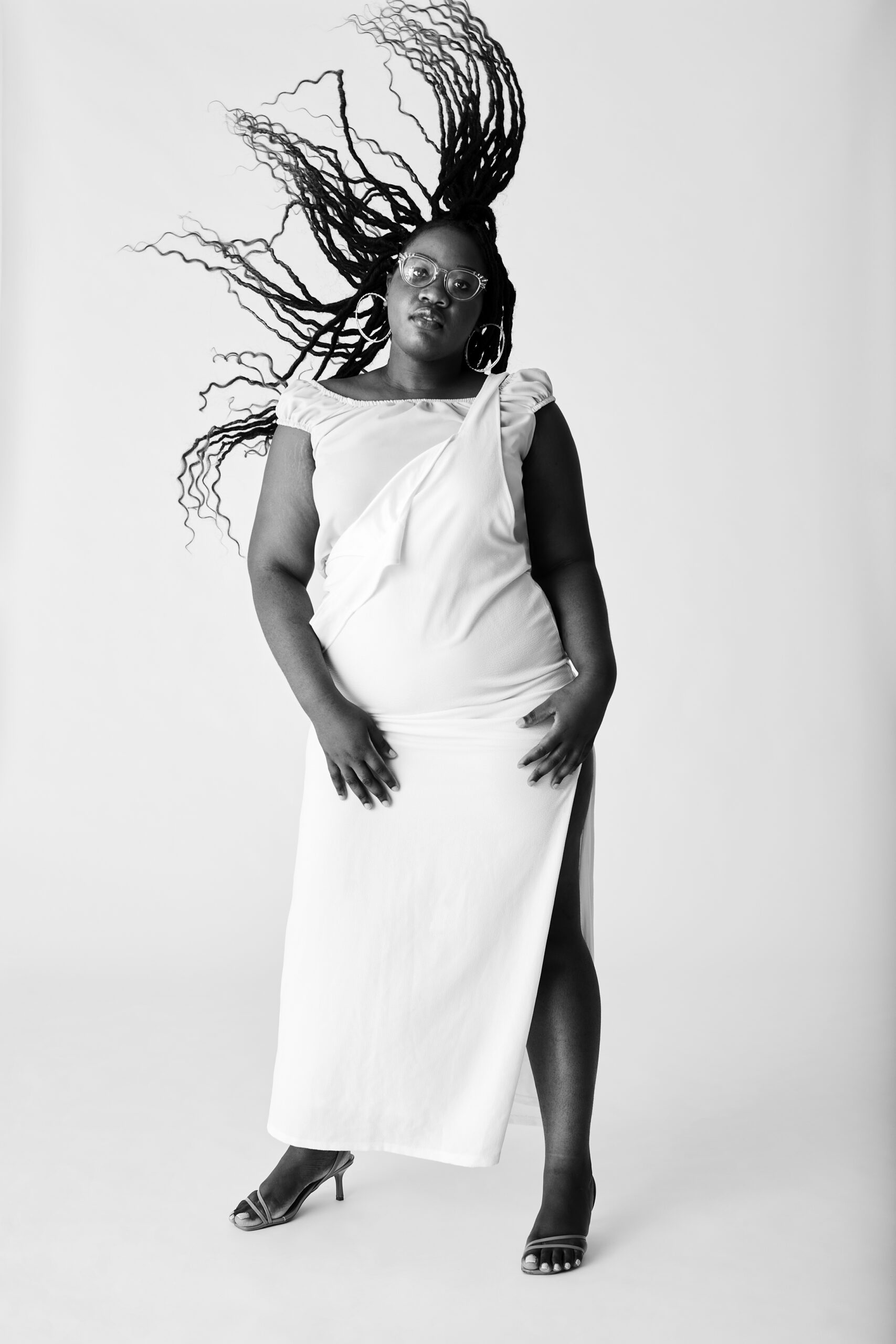 Edna de Carvalho, hairdresser and beautician from Angola. São Paulo, 2022
Edna de Carvalho, hairdresser and beautician from Angola. São Paulo, 2022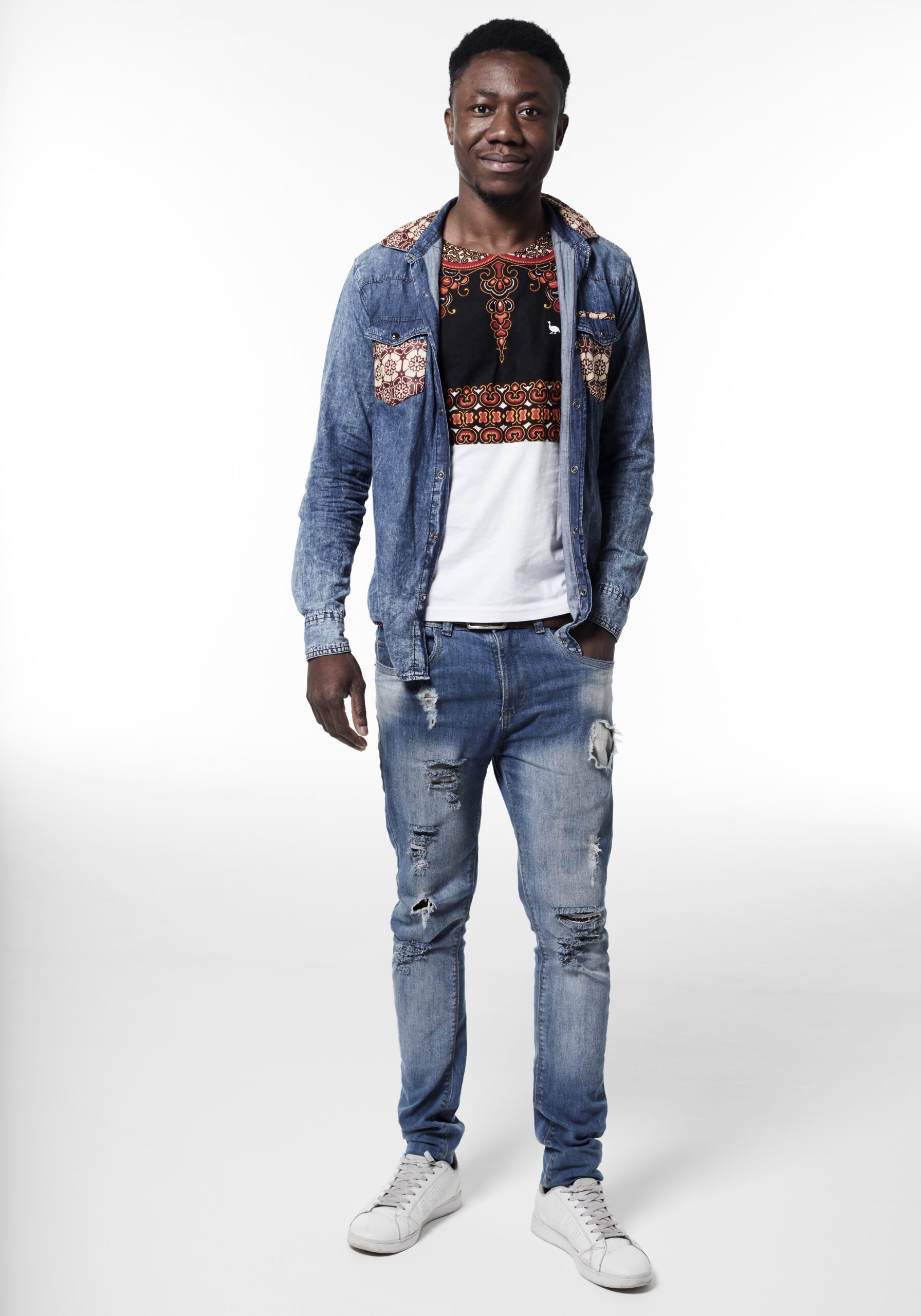 Morais João Soares, Computer Technician from Angola. São Paulo, 2018
Morais João Soares, Computer Technician from Angola. São Paulo, 2018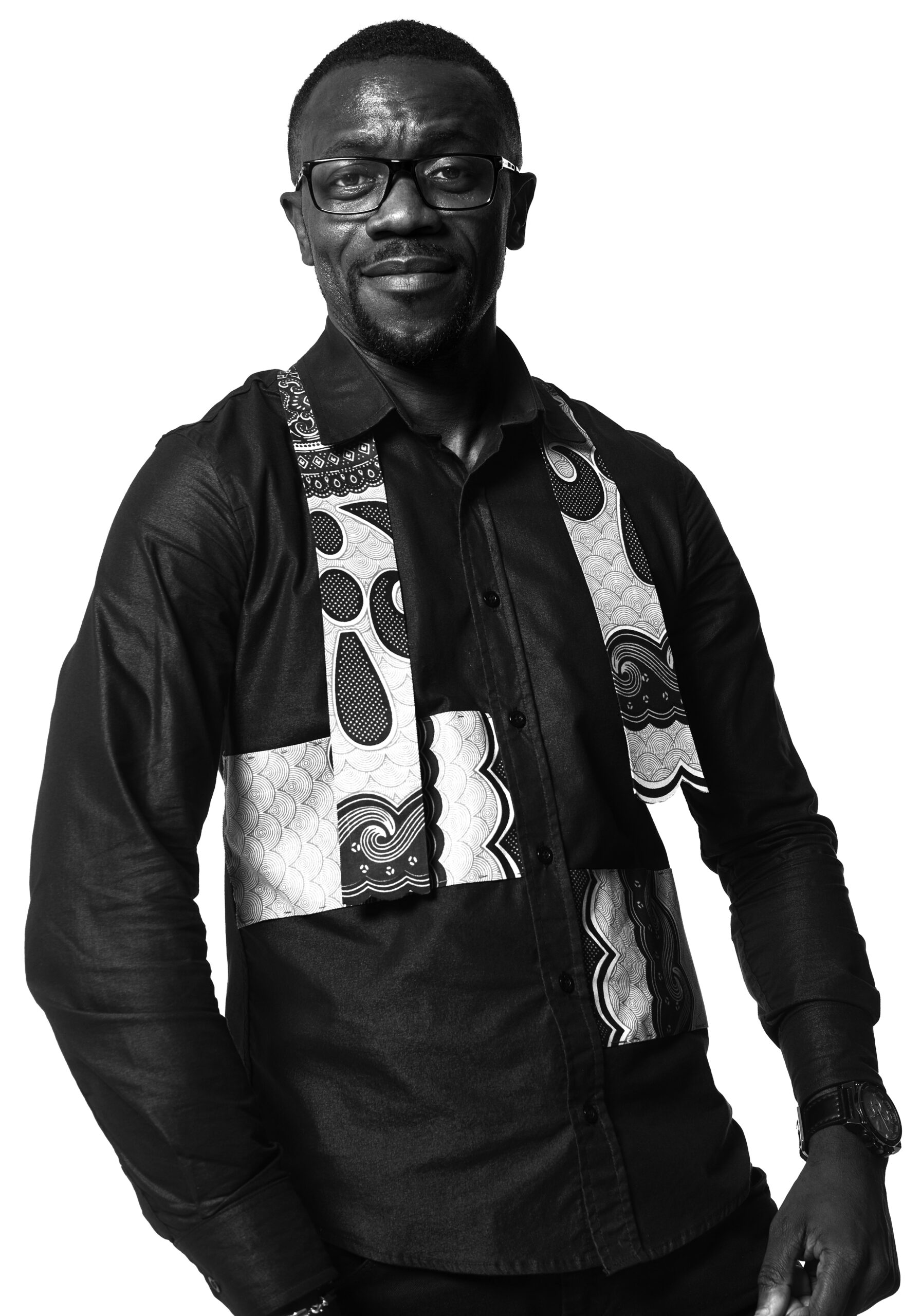 João Canda, poet and speaker from Angola. São Paulo, 2018
João Canda, poet and speaker from Angola. São Paulo, 2018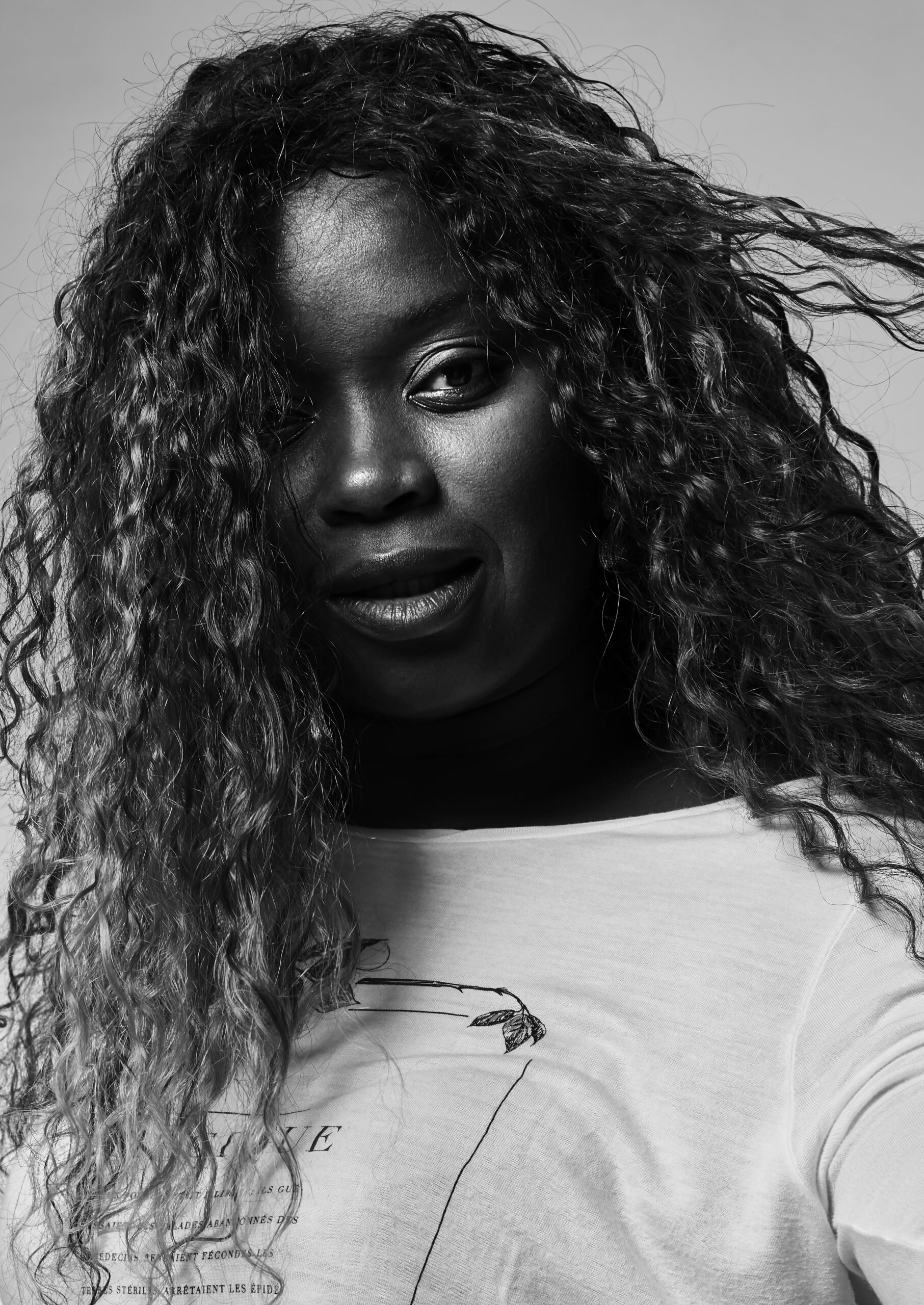 Prudence Kalambay, model, actress and activist from Democratic Republic of Congo. São Paulo, 2018
Prudence Kalambay, model, actress and activist from Democratic Republic of Congo. São Paulo, 2018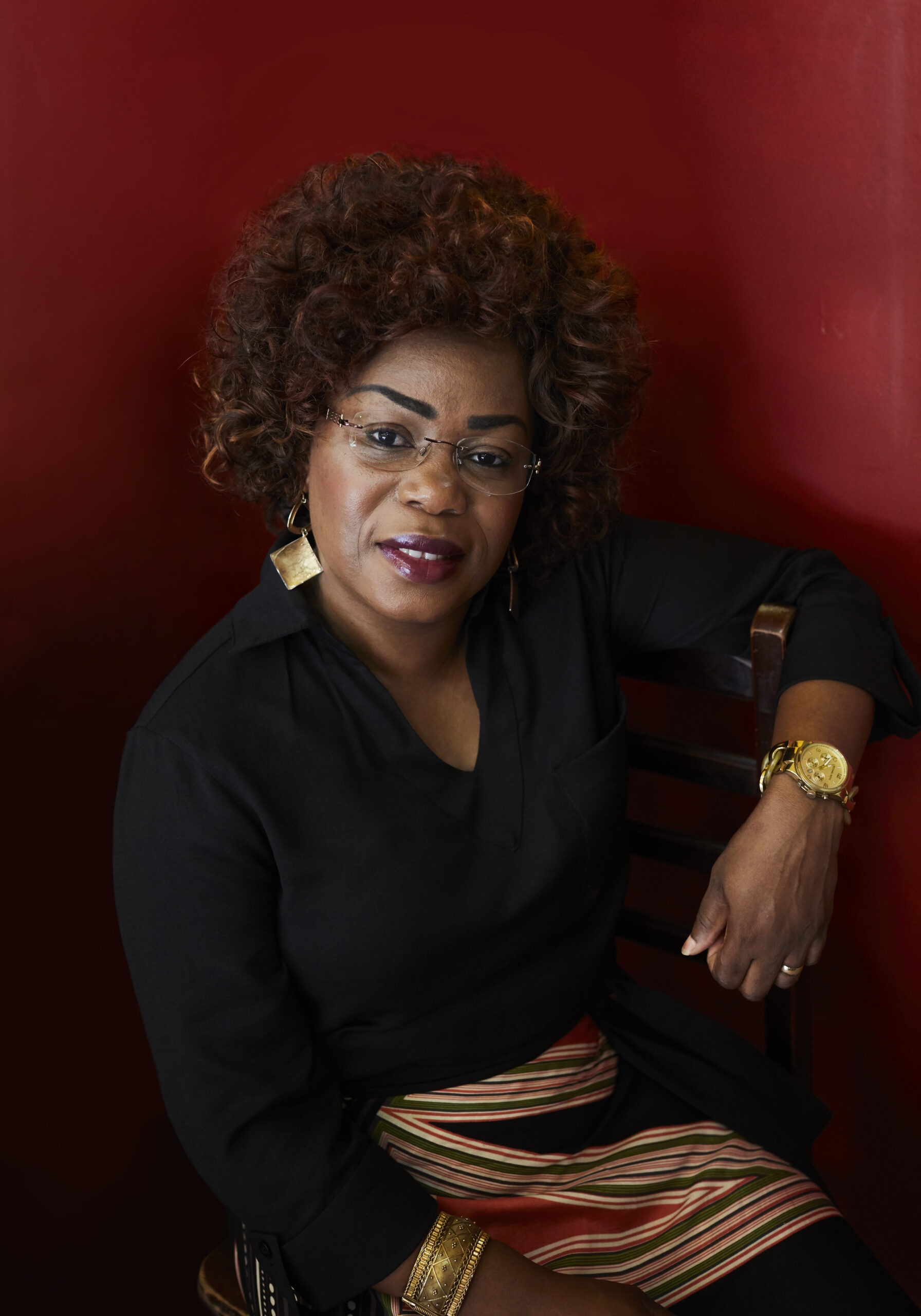 Melanito Biyouha, chef and restaurant owner from Cameroon. São Paulo, 2019
Melanito Biyouha, chef and restaurant owner from Cameroon. São Paulo, 2019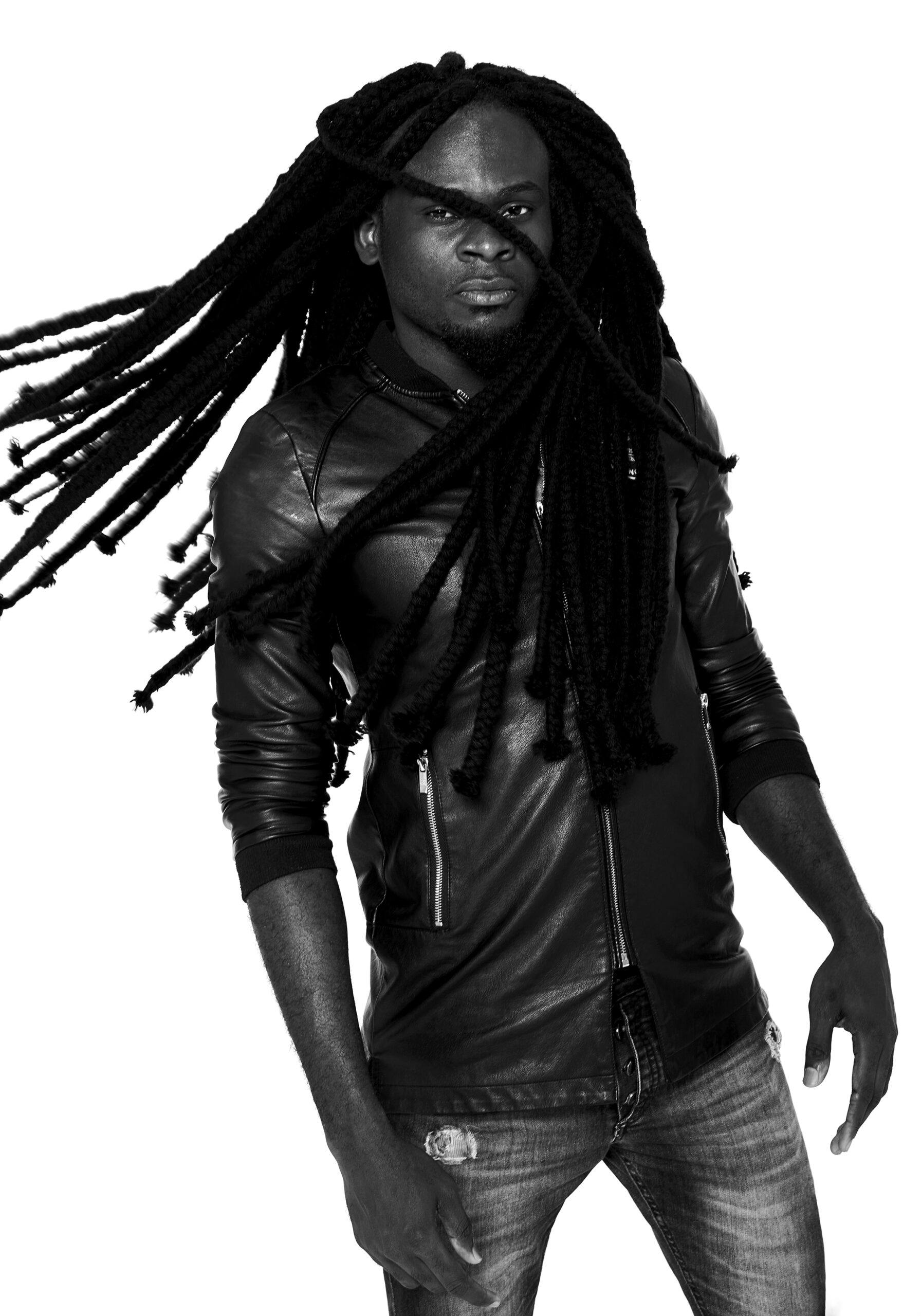 Maycon Clinton, model agency owner from Angola. São PAulo, 2019
Maycon Clinton, model agency owner from Angola. São PAulo, 2019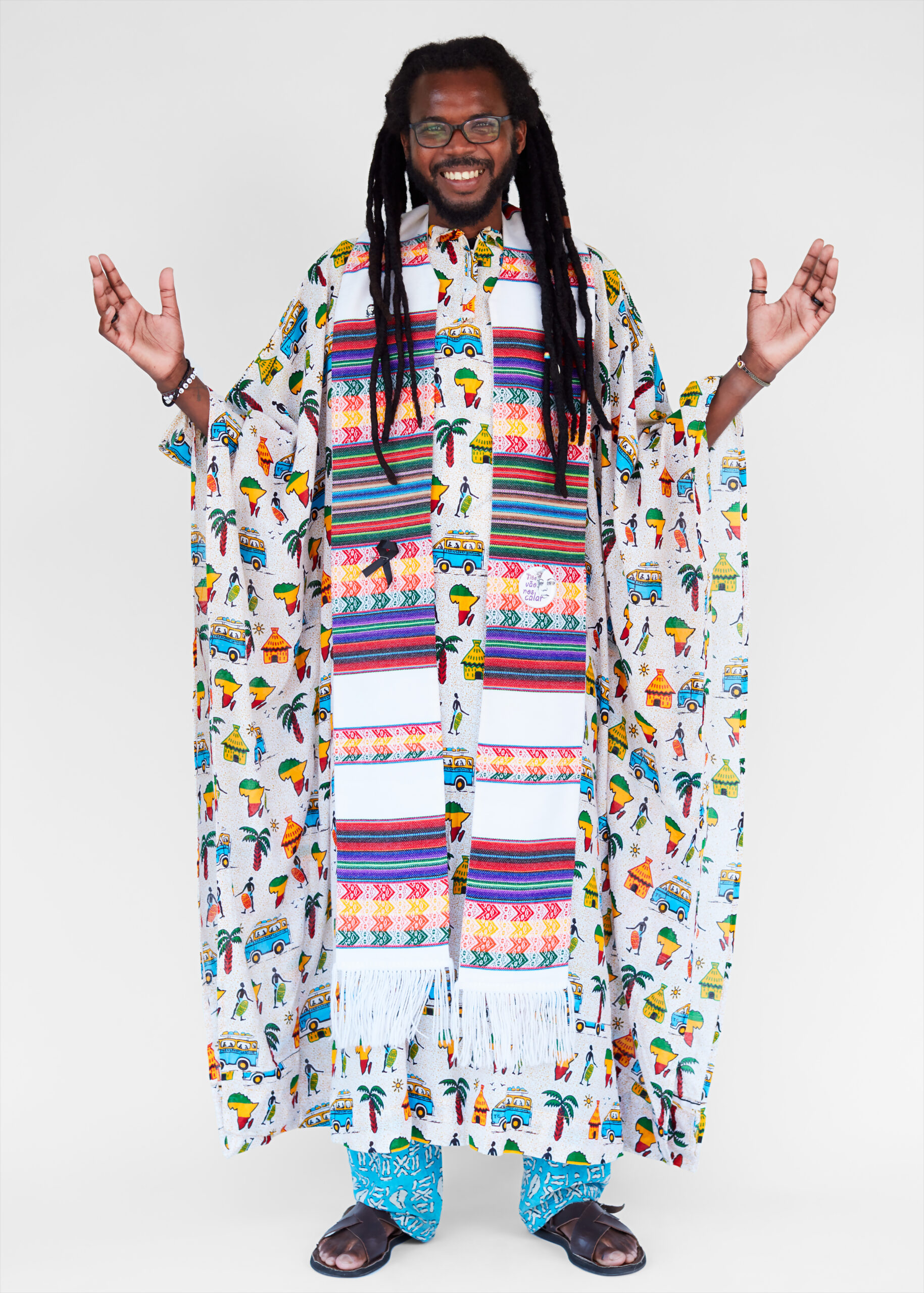 Padre Assis Tavares, priest from Cabo Verde. São Paulo, 2022
Padre Assis Tavares, priest from Cabo Verde. São Paulo, 2022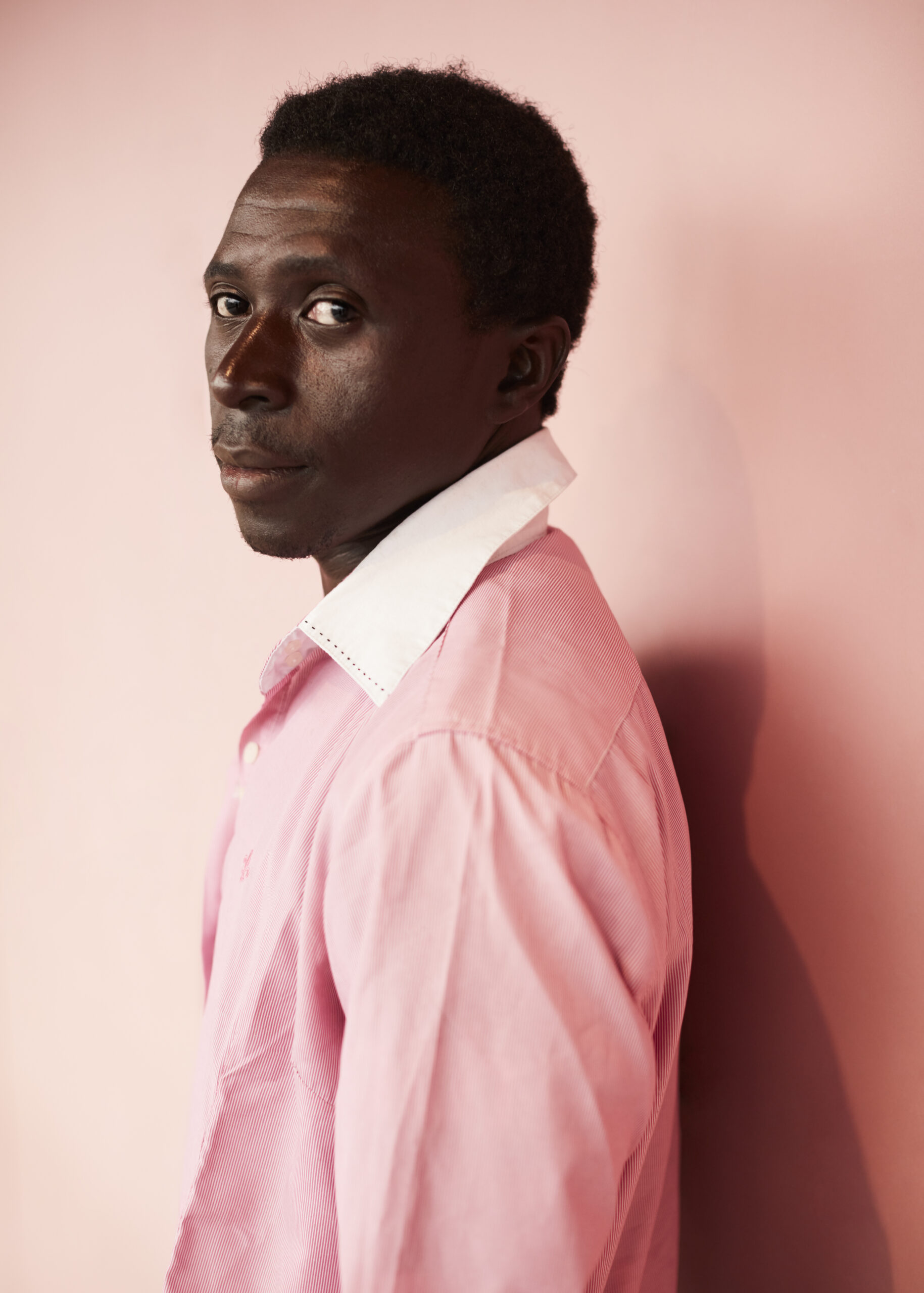 Adama Konate, store owner from Mali. São Paulo, 2019
Adama Konate, store owner from Mali. São Paulo, 2019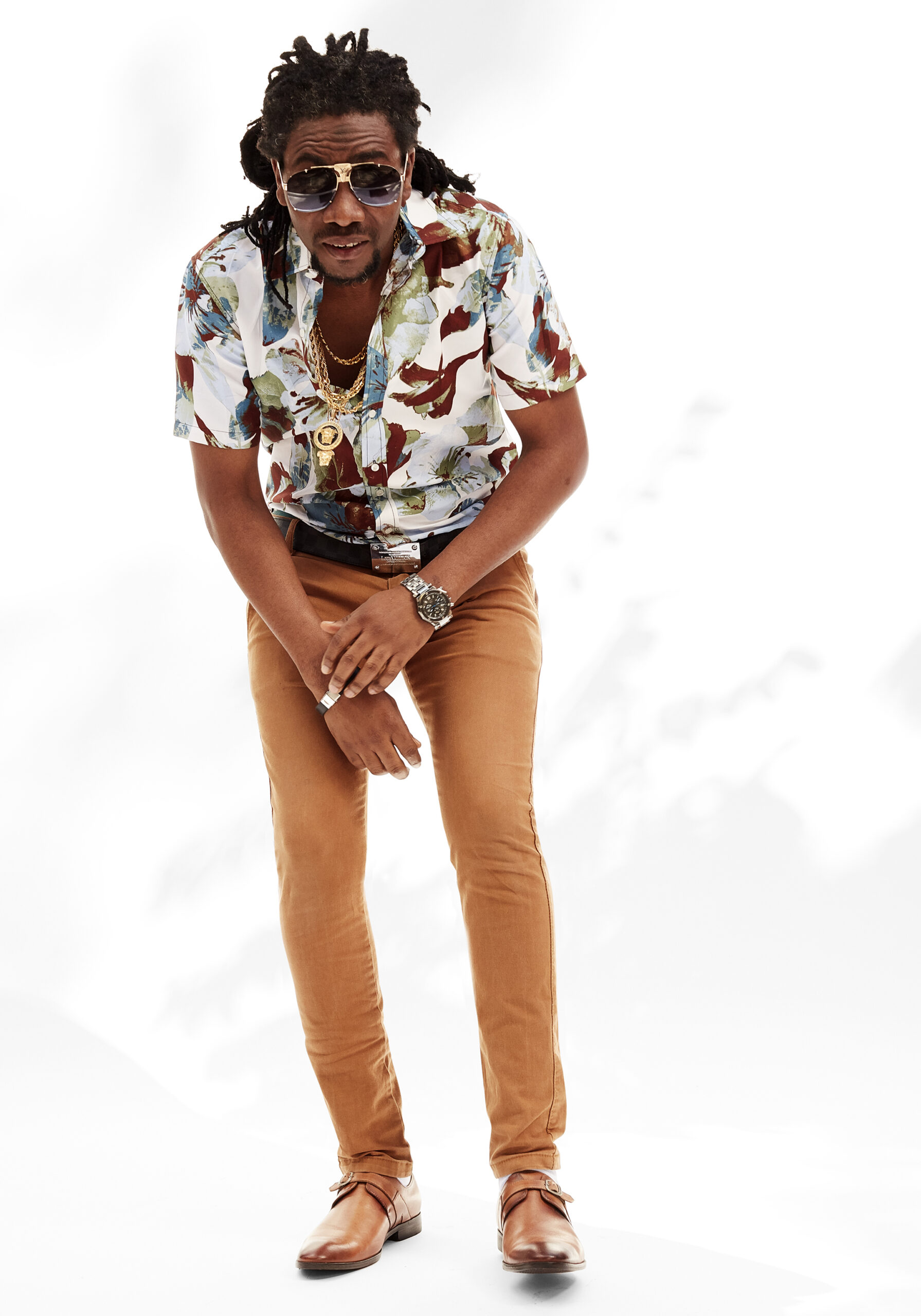 Oskaf Abdoul, singer from Benin. São PAulo, 2019
Oskaf Abdoul, singer from Benin. São PAulo, 2019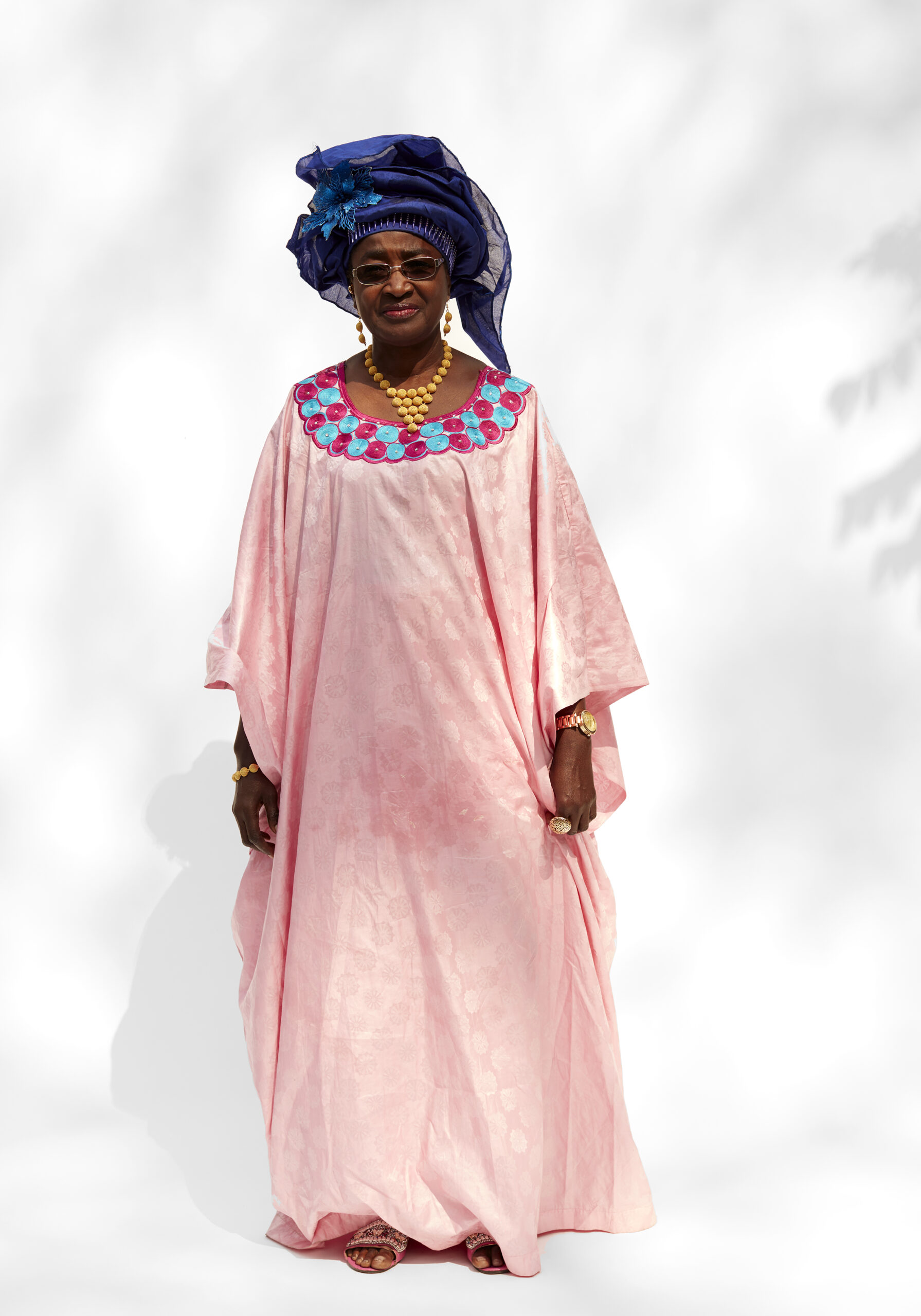 Mama Diarnou Diop, stylist from Senegal. São Paulo, 2019
Mama Diarnou Diop, stylist from Senegal. São Paulo, 2019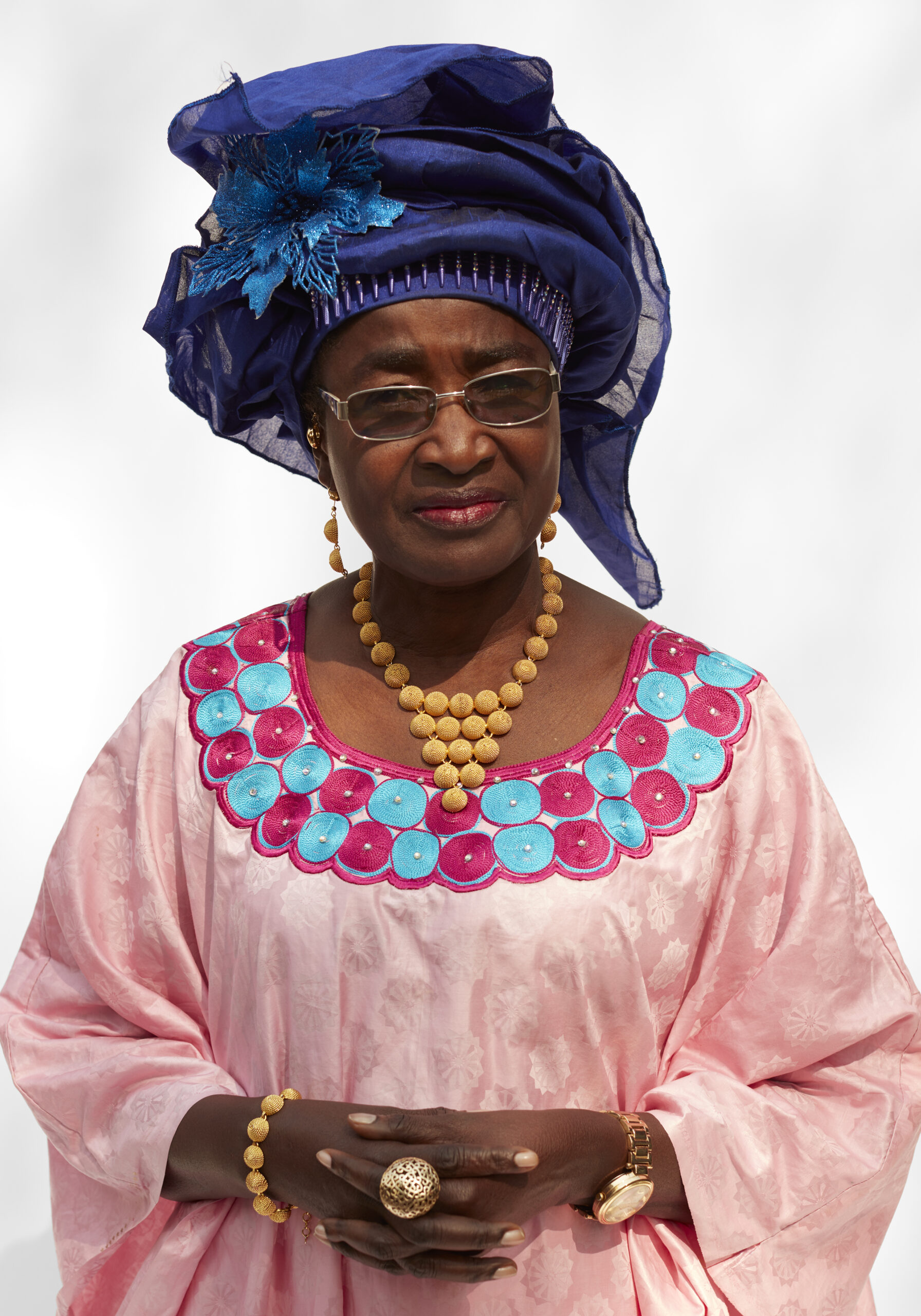 Mama Diarnou Diop, stylist from Senegal. São Paulo, 2019
Mama Diarnou Diop, stylist from Senegal. São Paulo, 2019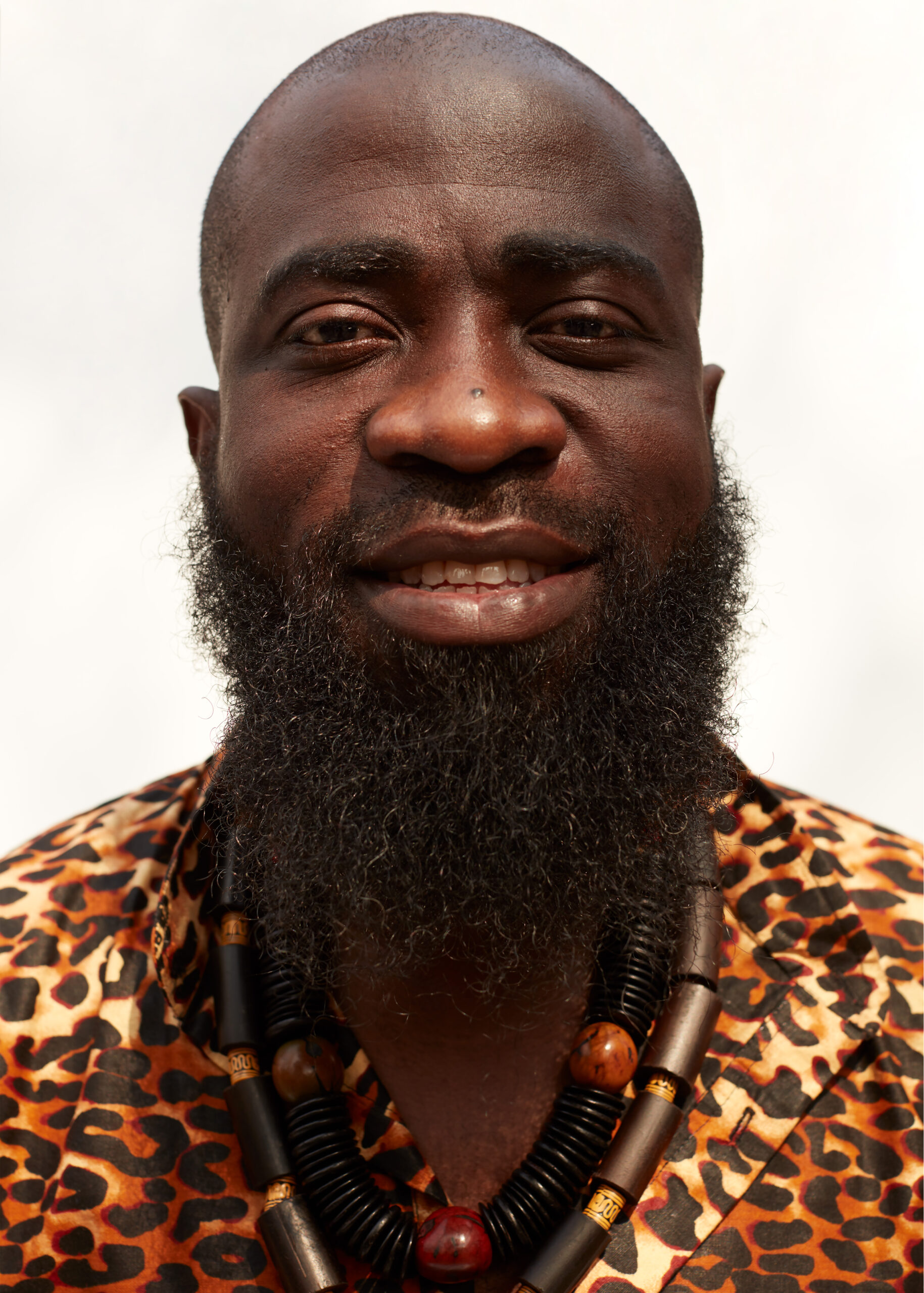 Shambuyi Wetu, plastic artist and performer from Democratic Republic of Congo. São Paulo, 2019
Shambuyi Wetu, plastic artist and performer from Democratic Republic of Congo. São Paulo, 2019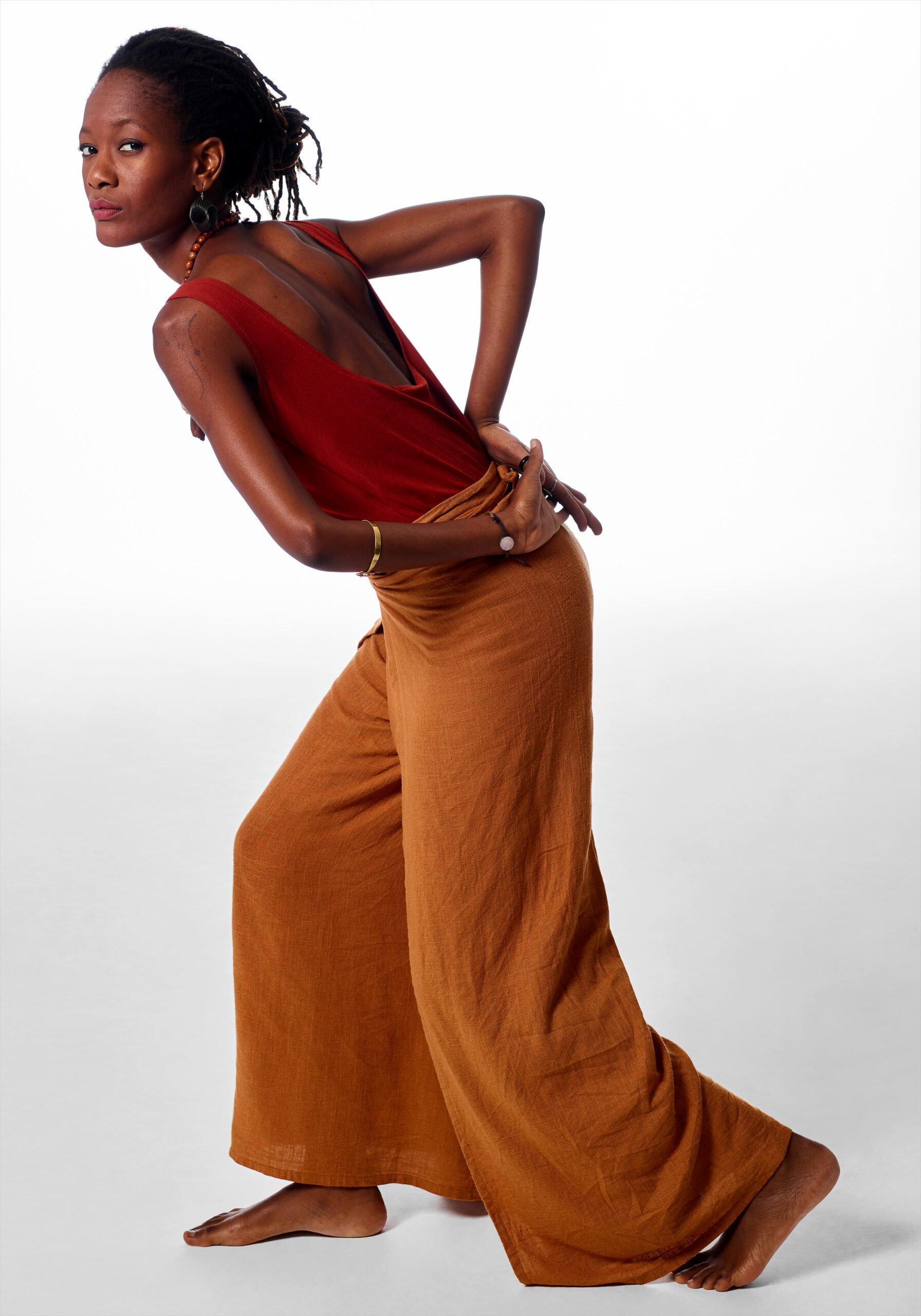 Lenna Banhule, singer from Mozambique. São Paulo, 2019
Lenna Banhule, singer from Mozambique. São Paulo, 2019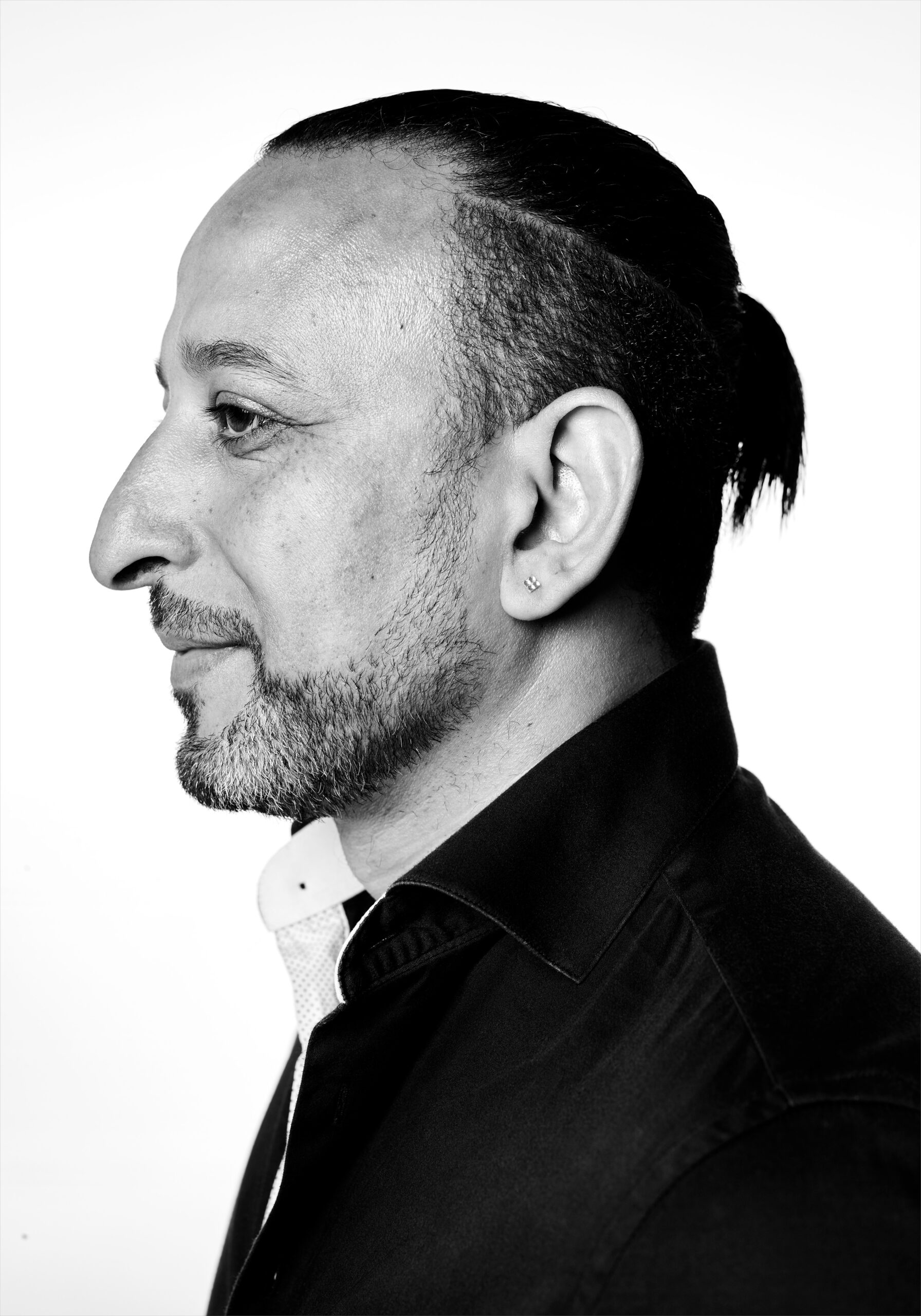 Tarek Sabry, musician and chef from Egypt. São Paulo, 2019
Tarek Sabry, musician and chef from Egypt. São Paulo, 2019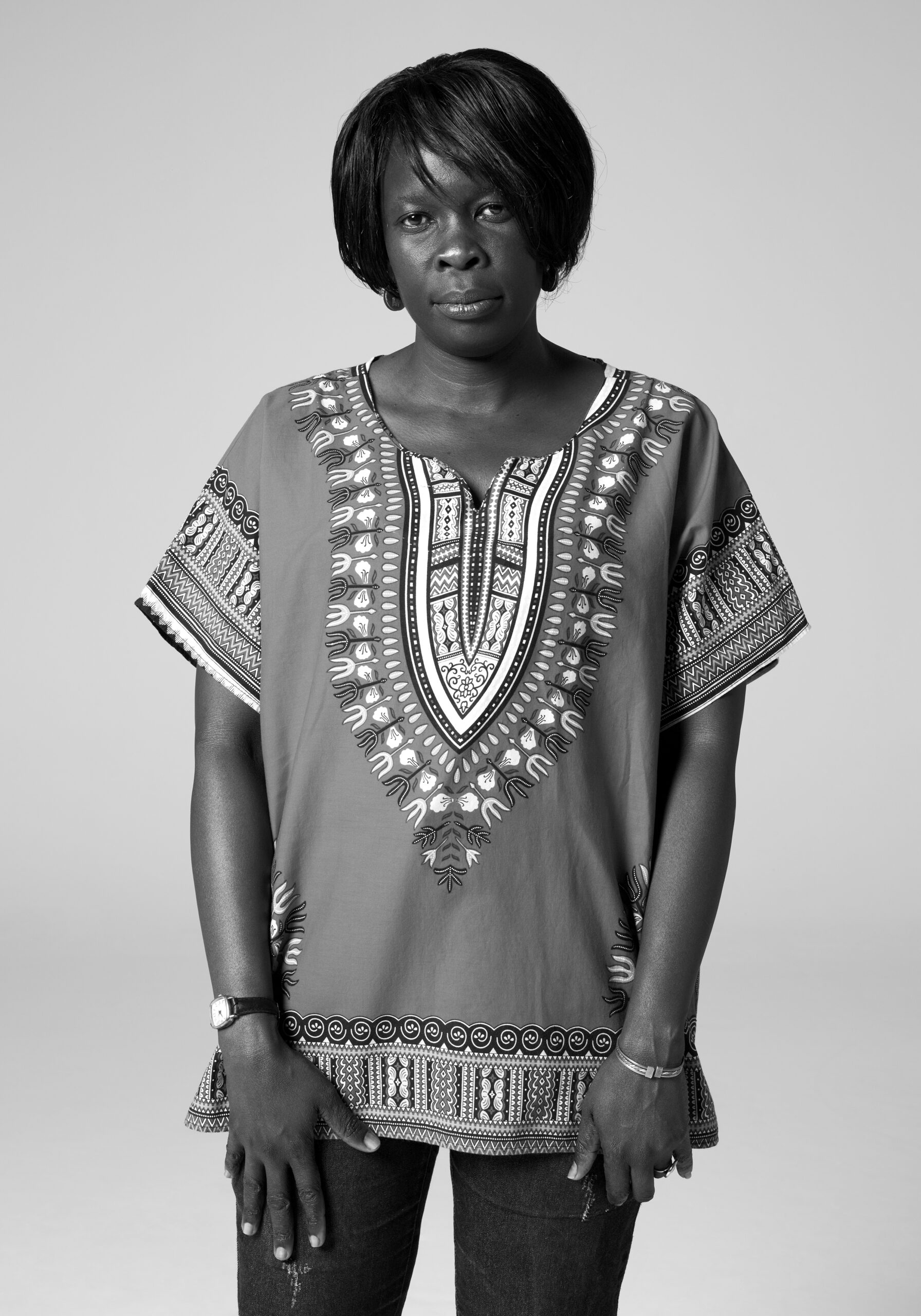 Jessica Ruth Ebaku, chef from Uganda. São Paulo, 2020
Jessica Ruth Ebaku, chef from Uganda. São Paulo, 2020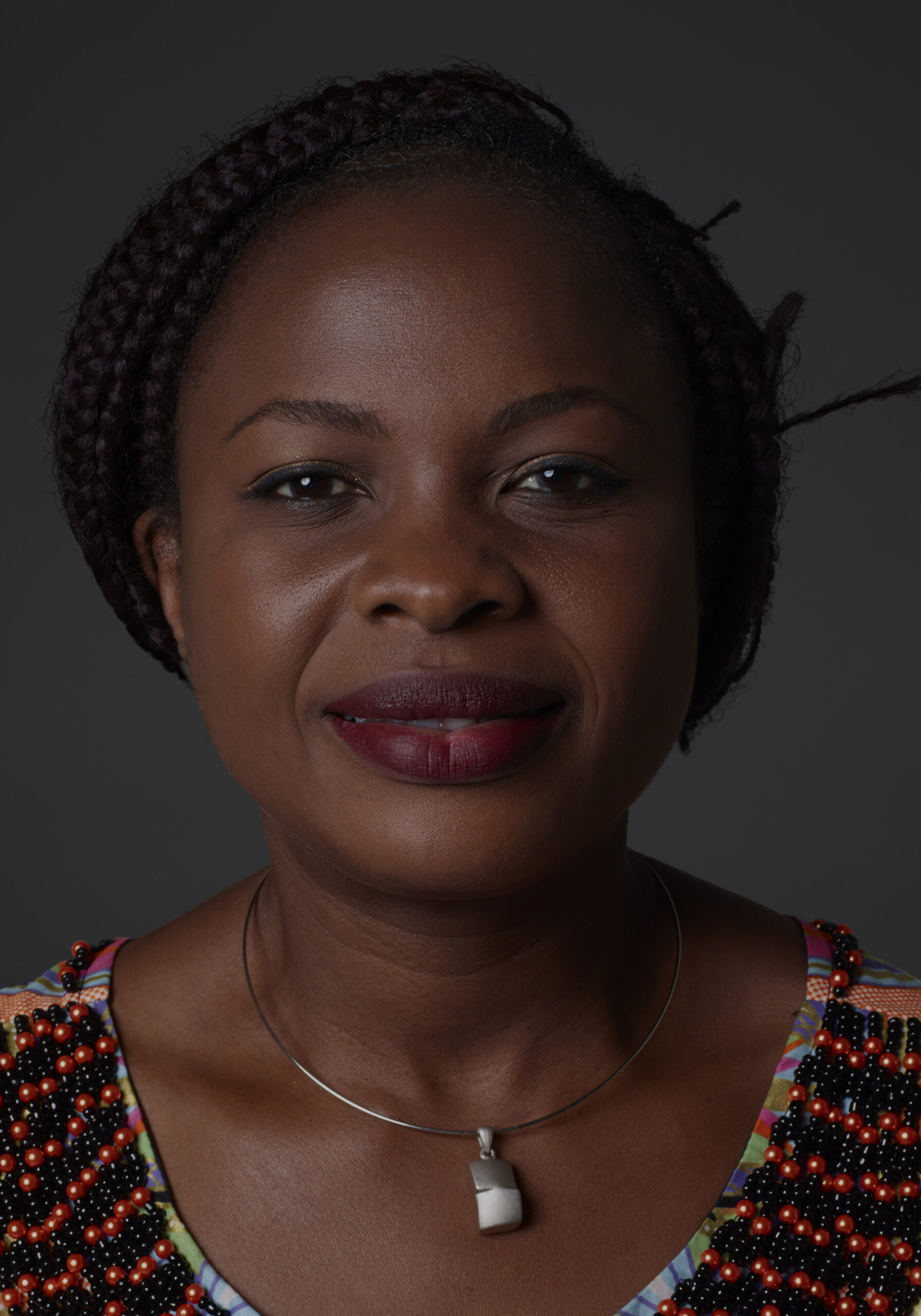 Sylvie Nutyene from Democratic Republic of Congo. São Paulo, 2020
Sylvie Nutyene from Democratic Republic of Congo. São Paulo, 2020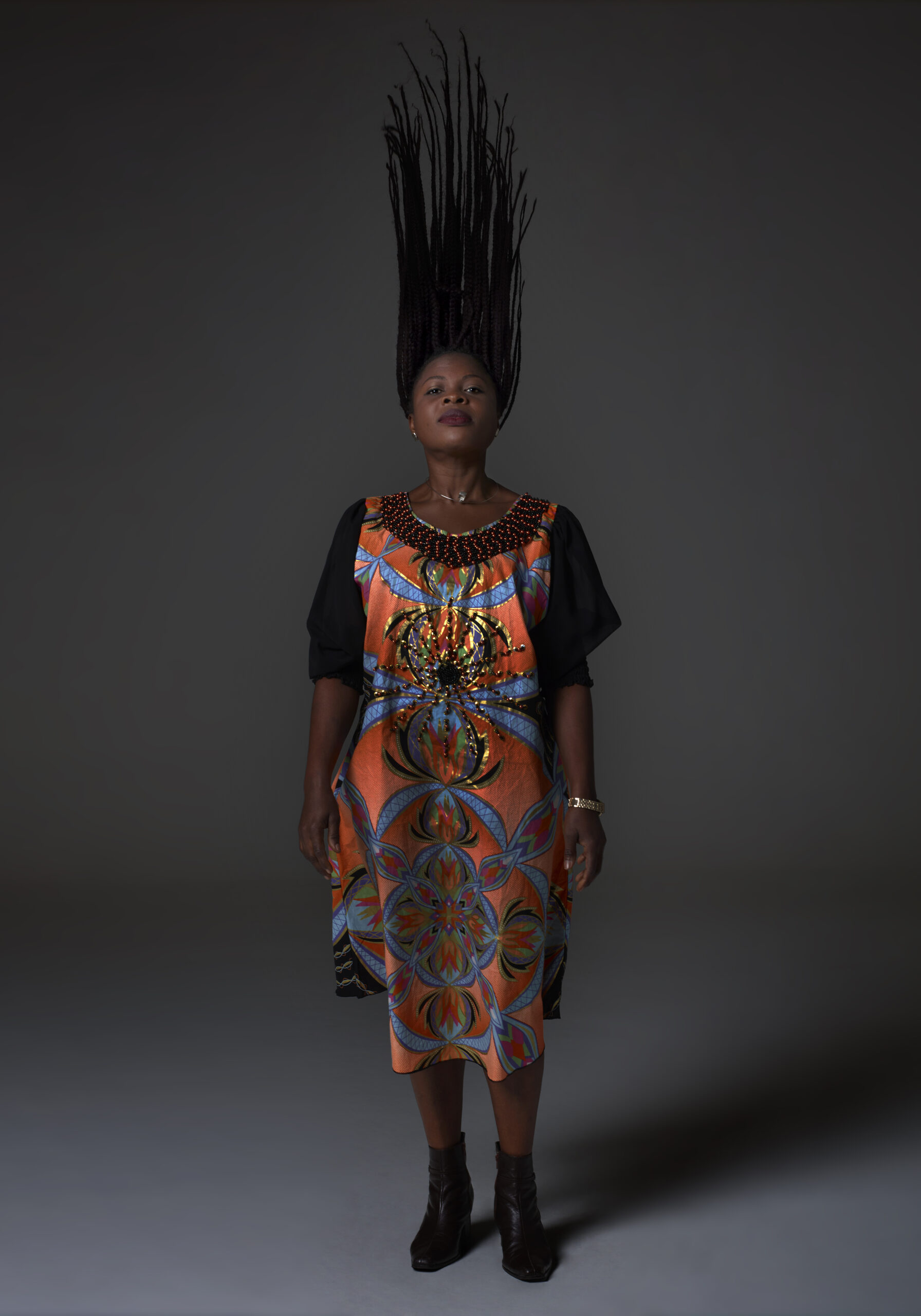 Sylvie Nutyene from Democratic Republic of Congo. São PAulo, 2020
Sylvie Nutyene from Democratic Republic of Congo. São PAulo, 2020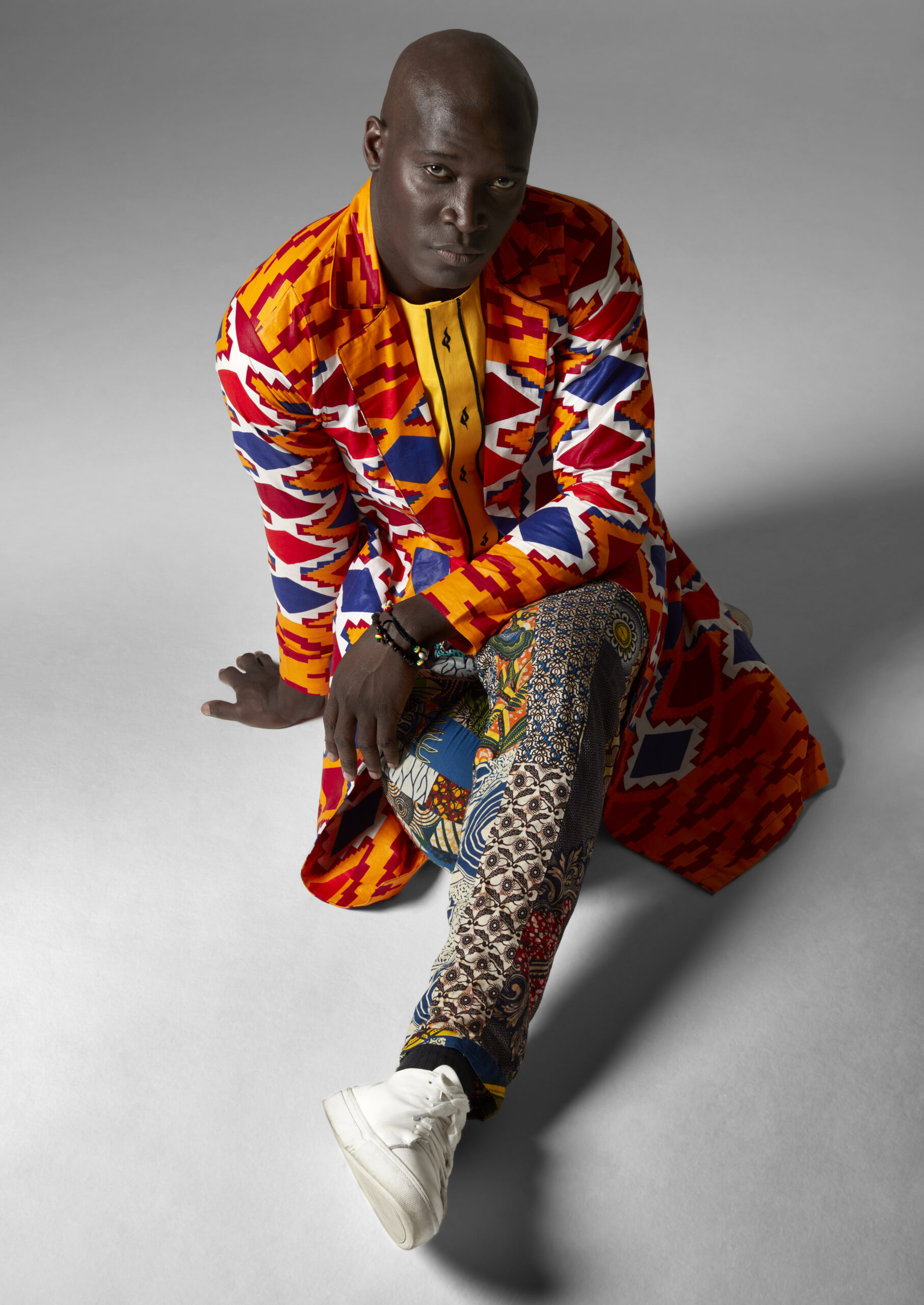 Vensam Lala, model and actor from Guinea Bissau. São Paulo, 2021
Vensam Lala, model and actor from Guinea Bissau. São Paulo, 2021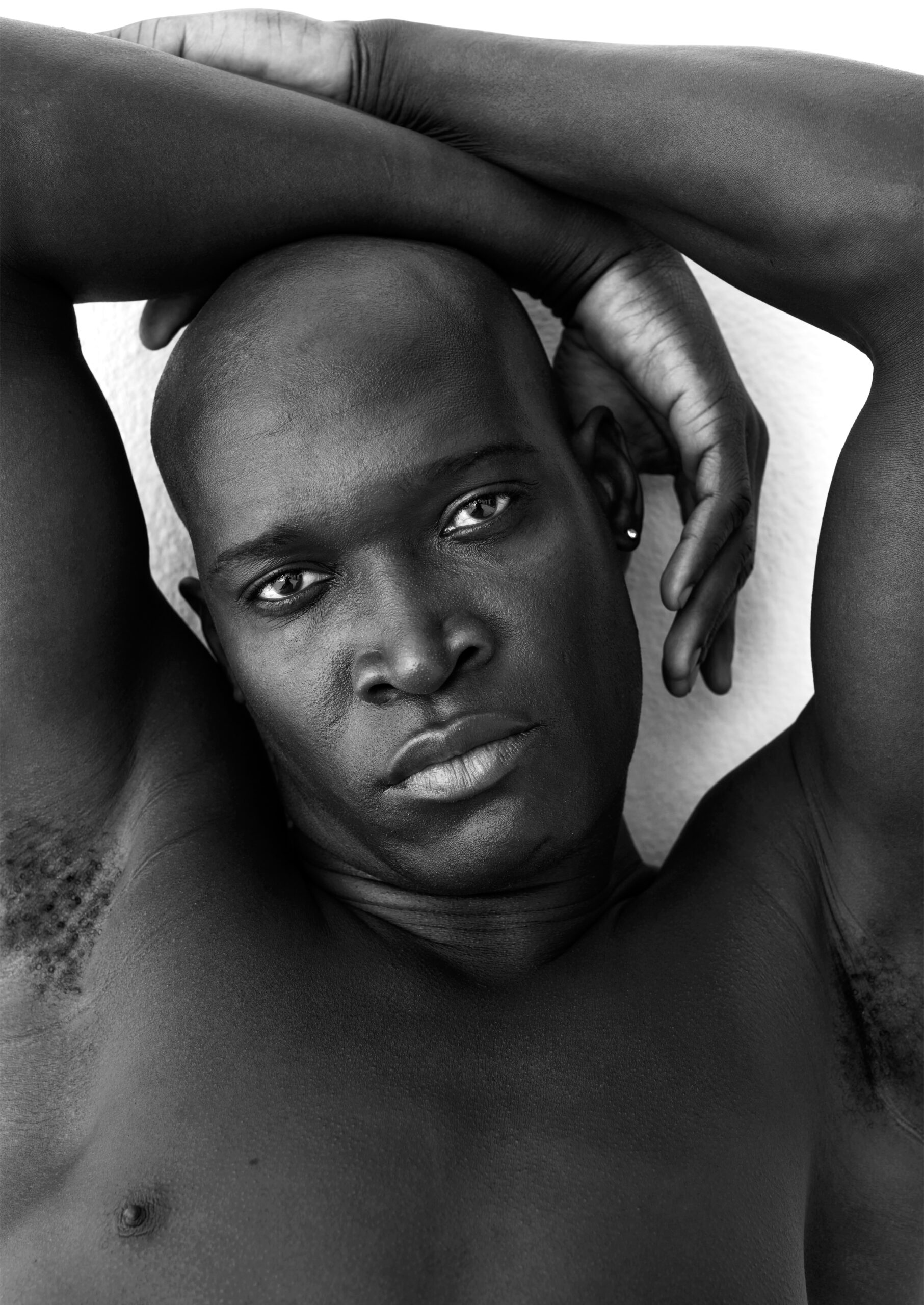 Vensam Lala, model and actor from Guinea Bissau. São Paulo, 2021
Vensam Lala, model and actor from Guinea Bissau. São Paulo, 2021
When walking through downtown São Paulo in 2018, performing journalistic work for Folha de S.Paulo, we could carefully observe the vibrant variety of expressions and colors of the commerce practiced by Africans. We were ecstatic in the face of such cultural wealth, but soon the questions arose: who were those immigrants? How did they adapt to Brazil? In the following years, we delved into this universe, not pretending to fully decipher it, but trying to get to know it a little better.
Through 43 women and men from 21 countries, such as Cape Verde, Egypt, Gabon, Mozambique and Nigeria, we heard stories of people who completely reinvented themselves in the short space of a couple years. Today, as it was in the colonial past, rebuilding life in a country like Brazil is extremely difficult for Africans: almost all of them have told us of painful racism episodes.
Each guest brought particularities of their country on photos and texts, proving that we need to resist the simplistic view that Africa is a homogeneous continent. Things are way more complex and therefore much more interesting.
In the split seconds of doubt about the project’s relevance, the guests themselves encouraged us to move forward. This exhibition is therefore dedicated to them –Angolans, Guineans, Senegalese and many others of whom we have become admirers.
Bob Wolfenson & Naief Haddad
DEMOCRACY
